FLOURISH





As I write this letter to you, there is much occurring in our country and world to distract us from the purpose that drives our work. No matter the outside chaos that exists daily, we know that the business of the School of Education at Gonzaga University resides in its focus on human flourishing.
Our work begins as we consider who we are preparing our students to serve. That is our starting point, the source of our purpose. Often, it is much too easy to forget the “why” behind our daily efforts. The “why” of the SOE is the children, families, and communities we serve nearby and in those we serve who are far away.
The SOE team staff, faculty, and administrators, cares deeply about the impact of its work. Because of these individuals, Gonzaga students spend approximately 120,000 hours each year in local schools and agencies, partnering with global sports organizations, local partners, and members of the community who benefit from the training our students receive.
Experts and support staff facilitate critical work in addressing issues surrounding mental health, learning differences, best practices in teaching, access to sports for all and in varied contexts, leadership in educational settings, and K-12 student wellness.
Community makes up the village that we call society; no one ever succeeds on their own. It takes a committed team with its eye on a specific purpose to transform professional practice in such a way that its impact is profound and meaningful.
In this time of distraction and what feels like determined chaos, we will hold our focus steady on human flourishing. Gonzaga’s School of Education will continue to improve our practice and ask questions that provoke a deeply engaged service to others. It is the essential foundation of our past, present and future.

Yolanda Gallardo, Ph.D. Dean, School of Education

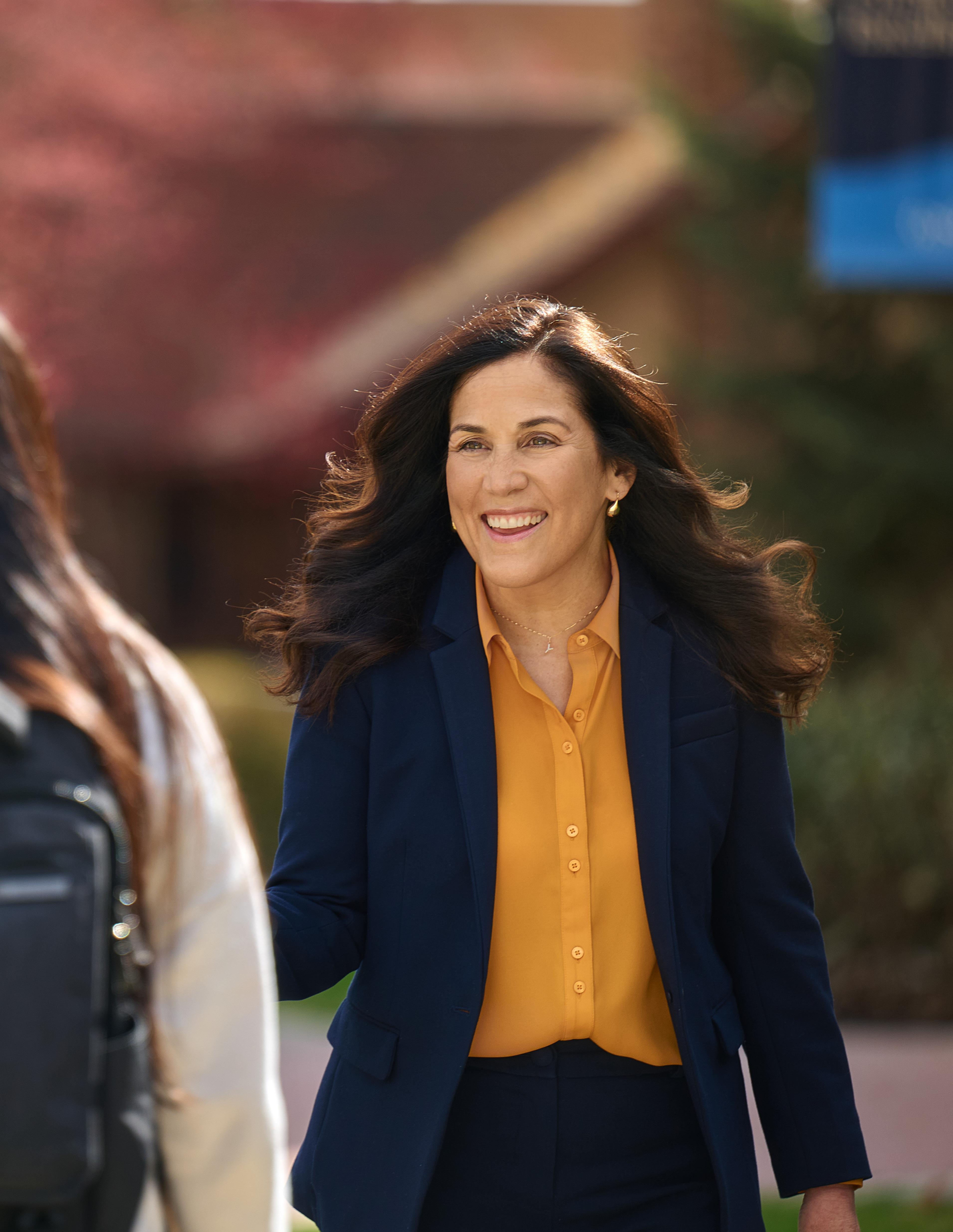
We
will hold flourishing. OUR FOCUS steady on human “
120,000
hours per year that School of Education faculty and students spend in service to the Spokane community.
100%
job placement achieved for 2024 graduates from all three counseling programs.
24
preschoolers from the local community served each year in the Pre-School Lab which extends handson learning for Early Childhood Special Education students.
730%
growth in Kinesiology program from 2016 to 2024.
107%
growth in Sport Management undergraduate majors from 2016 to 2024.
100%
pass rate for the Praxis II, a comprehensive exam designed for candidates seeking licensure or certification as a school psychologist in educational settings.
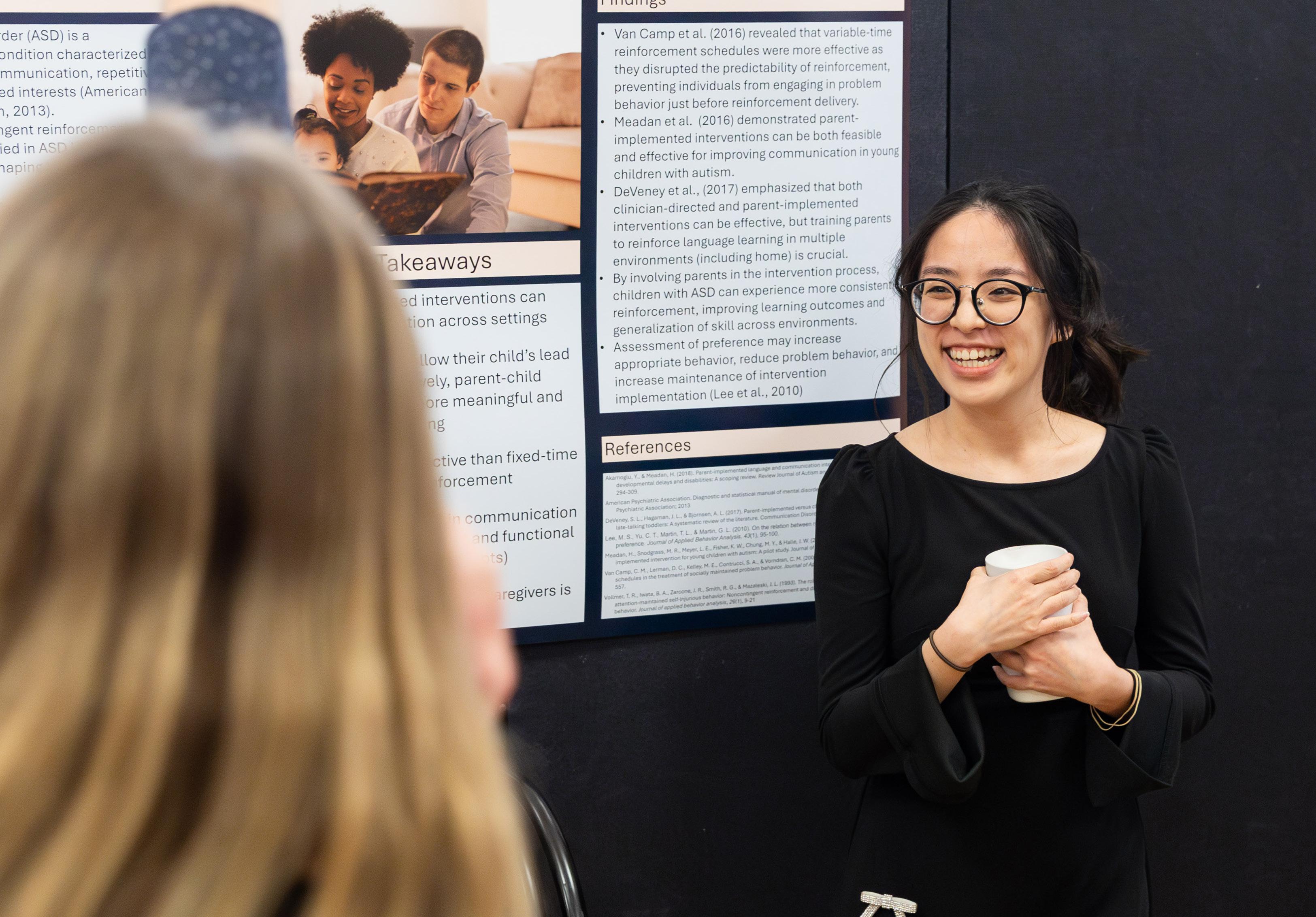
The Office of a Pedagogy of Hope (PoH) through Research and Practice serves everyone. From local community organizations and K-12 educators to Gonzaga’s own students, faculty, and staff, the PoH exists to re-imagine learning spaces as accessible and inclusive for all.
By providing learning opportunities, hosting academic conferences surrounding issues of inclusion and equality, granting student and faculty research stipends, and serving local schools and organizations, the PoH seeks to push systems toward tangible change.
“We realize that in our community, there are differences for marginalized groups regarding where we are now, and where we need to be in order for equality to happen,” said Ridge Bynum, PoH Program Coordinator. “That can be hard. But there’s always a way to get to where we want to be.”
Since its inception five years ago, the PoH has quadrupled the number of people it is able to serve. Last year, the PoH
But there’s we want to be. ALWAYS A WAY to get to where “
hosted seven events, more than all the previous years combined.
The year kicked off with a series of workshops hosted by Paul Gorski, a researcher, teacher and founder of the Equity Literacy Institute. Gorski discussed equity literacy’s comprehensive approach to creating and sustaining equitable schools, and reimagined the way staff and faculty can support diverse learners at Gonzaga. He taught attendees how to adjust thinking and service delivery models to promote success for all students.
Gonzaga’s Suzann Girtz hosted a Lunch and Learn for future teachers about the myth of teacher burnout, and why teachers really leave their workplaces. Marie Medina and her students shared their literacy assessment work with District 81, in which they examined parental stress differences as predicted by their residence.
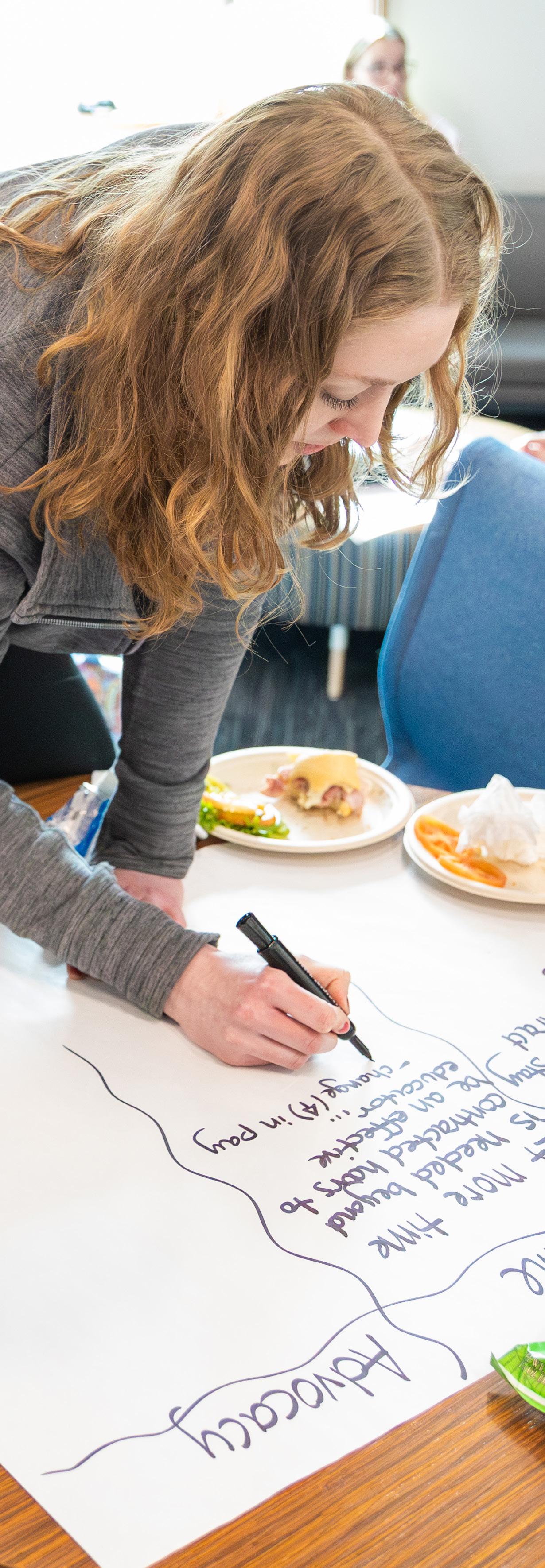
The PoH also collaborated with the Gonzaga community and beyond to put on two conferences. It provided logistic support, organization and marketing for a group of volunteer educators in order to host the Spokane Regional English as a Second Language (ESL) Conference in its 50th anniversary. Nearly 200 attendees gathered to hear from renowned speakers in multicultural education, equitybased teaching practices and K-12 ESL learning.
“It was a group of educators trying to do good in a tough spot,” Bynum said. “We were able to give them a boost.”
At the inaugural Diversity and Social Justice in Education conference, nearly 40 student presenters represented 10 academic departments across campus.
Students presented artwork, academic posters and even poetry, all featuring titles like “Saving the Salmon,” “The Opioid Lifejacket,” “Ceasefire in Gaza,” “Book Ban,” “The Trades in High School” and “Agricultural Literacy.”
“We brought forward a conference just for students that was completely free,” Bynum said. “We paid for all of their supplies to take with them to the next conference. It’s a big deal to give a conference presentation as an undergrad, so we try to accept as many applications as we can.”
Part of what distinguishes the PoH is the source of its funding. According to Bynum, aside from his position as the team’s sole full-time staff member, the office’s work is not funded by the university, but instead by donor dollars.
“All this work is done due to GU benefactors,” he said. “They’re the ones that keep this work going. And they’ve given us so much freedom, because we get to use our dollars exactly how we want, to do missiondriven work.”
Last year alone, for example, nearly $11,000 supported scholarship and service done by GU students, faculty and staff.
“The PoH currently supports up to six GU faculty-studentstaff projects each year, funded at $2,000 each,” said Monica Bartlett, professor of Psychology and the office’s faculty director.
One of these projects, entitled “Finding our Way: Teaching Workshops in NE Spokane,” helped students and teachers in Northeast Spokane reshape narratives about their communities. In partnership with K-12 teachers, the project developed an immersive, experiential curriculum that addresses historical inequities through the collection of community oral histories.
Another project, “Lessons for Dis/ability Rights Activists,” produced three 5–10-minute podcasts showcasing the work of dis/ability rights activists. Each podcast highlighted a case study demonstrating how collaborative leadership fosters inclusion. These stories provided educators with practical ideas for creating more accessible classrooms and integrating dis/ability perspectives into their teaching.
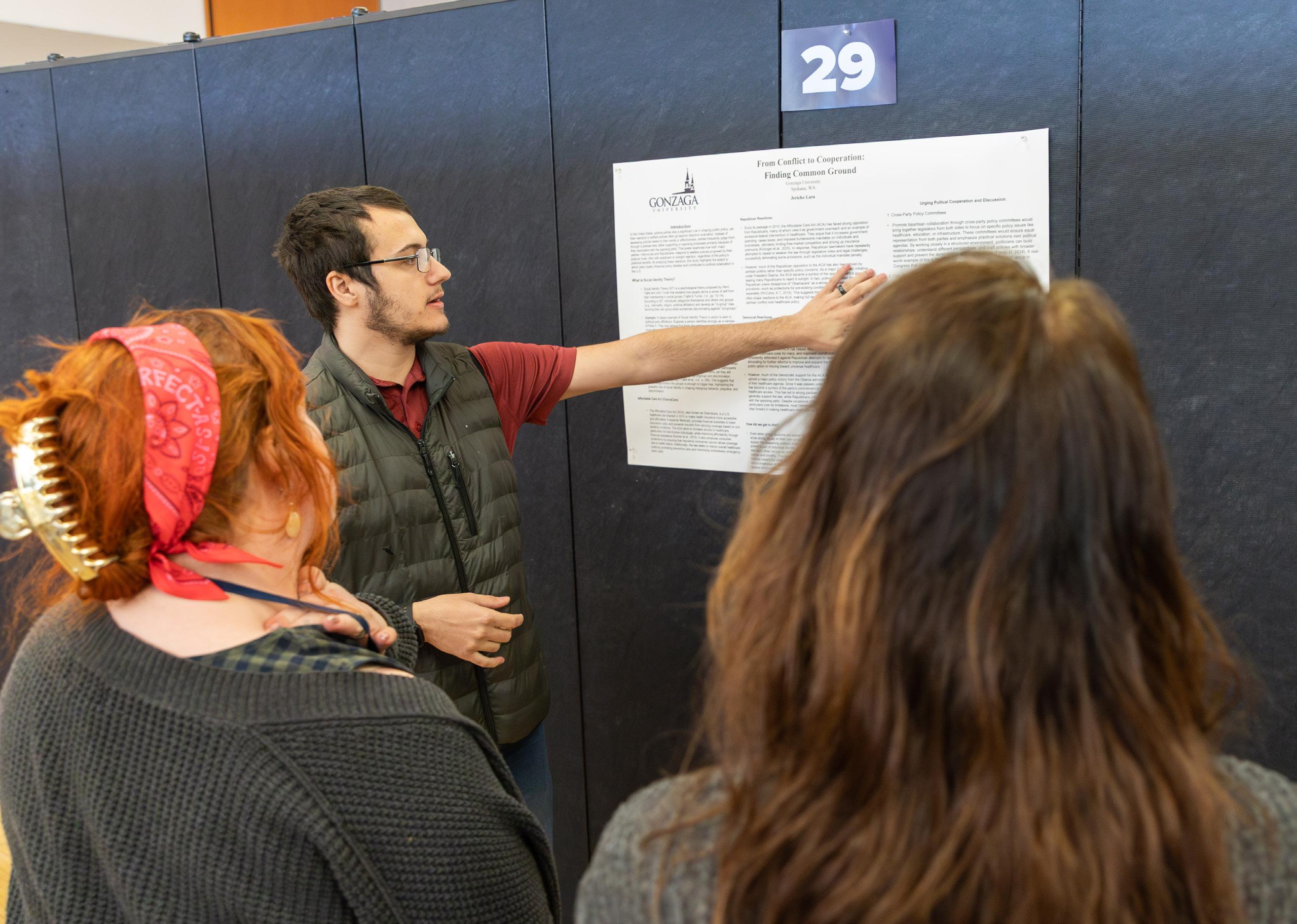
“The quality, variability and importance of these projects is incredibly inspiring,” Bartlett said.
The PoH partnered with Joe Johnston, professor of Sociology, to host a Lunch and Learn on the Walking School Bus, a program in which GU students walk children living in high-need neighborhoods from their homes to school.
“The program focuses on providing community-building opportunities for youth, volunteers and families, improving attendance and timeliness to school, and providing a healthy way to start the day,” Johnston said.
Two more Lunch and Learns took place. One provided a leadership framework that can be used to co-create healthy academic boundaries; the second discussed Katey Roden’s recent community project that addresses historical inequities and the cultural effects of climate change. The PoH also hosted the Spokane Regional ESL Conference again, as well as the second-ever Diversity & Social Justice in Education Conference.
“When we started out, nobody knew who we were,” Bynum said. “Now I get emails every other week asking for collaboration.”
Last year, the PoH increased the number of people it served by four times. Yet its busy team is a small one and is mostly comprised of graduate assistants like Martina Folowell Nix, who is also a native Hungarian speaker and first-generation college student. She is pursuing her doctoral degree in School Psychology at GU.
“I came back to school as an adult, and I’m an immigrant. English is not my native language,” she said. “I’ve had to work very hard to get to this point.”
Her story, she noted, is central to her work. According to Folowell Nix, to do the work of the PoH — to push for transformational change so that all learning spaces may one day be accessible and inclusive for all — is to do the work of hope.
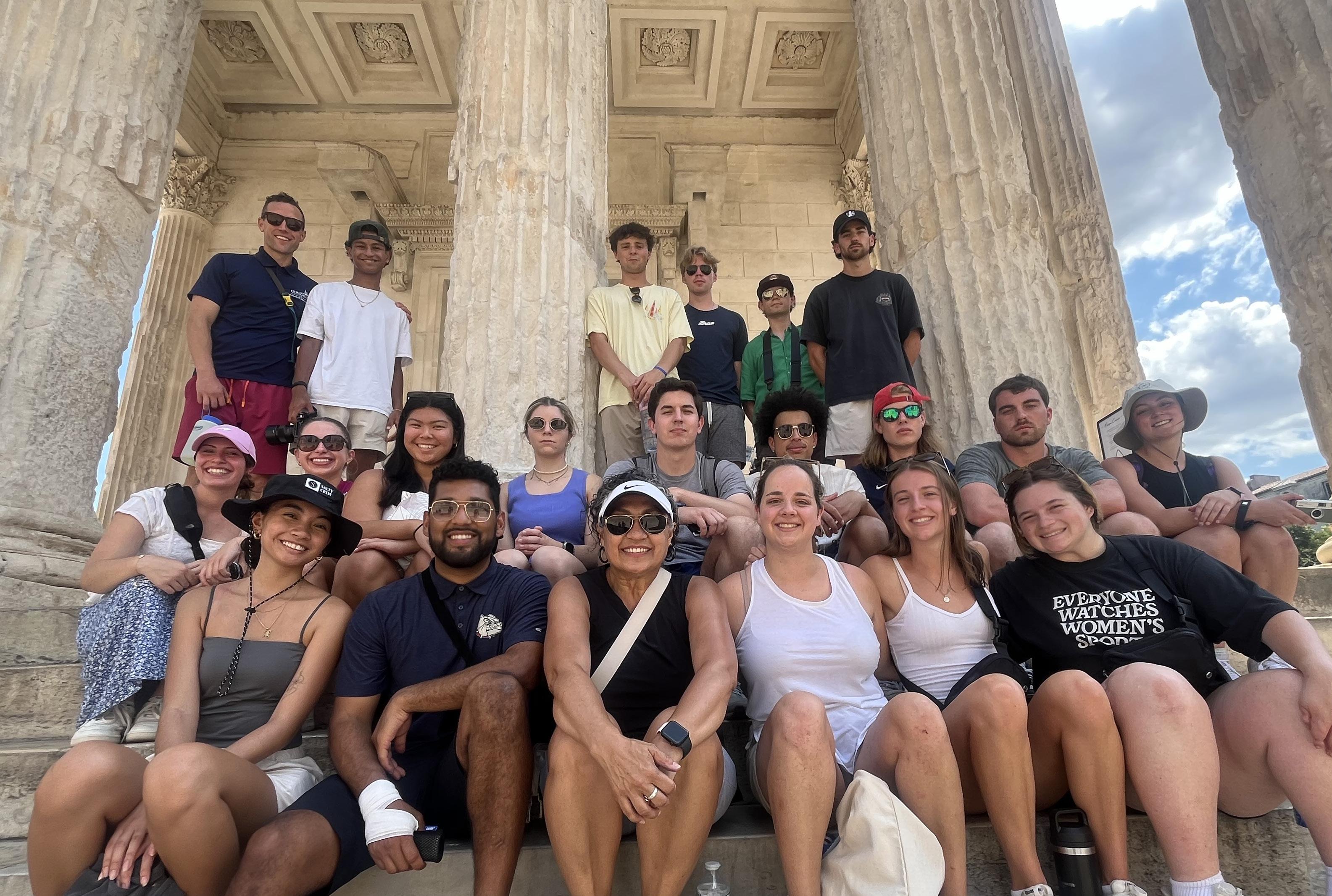
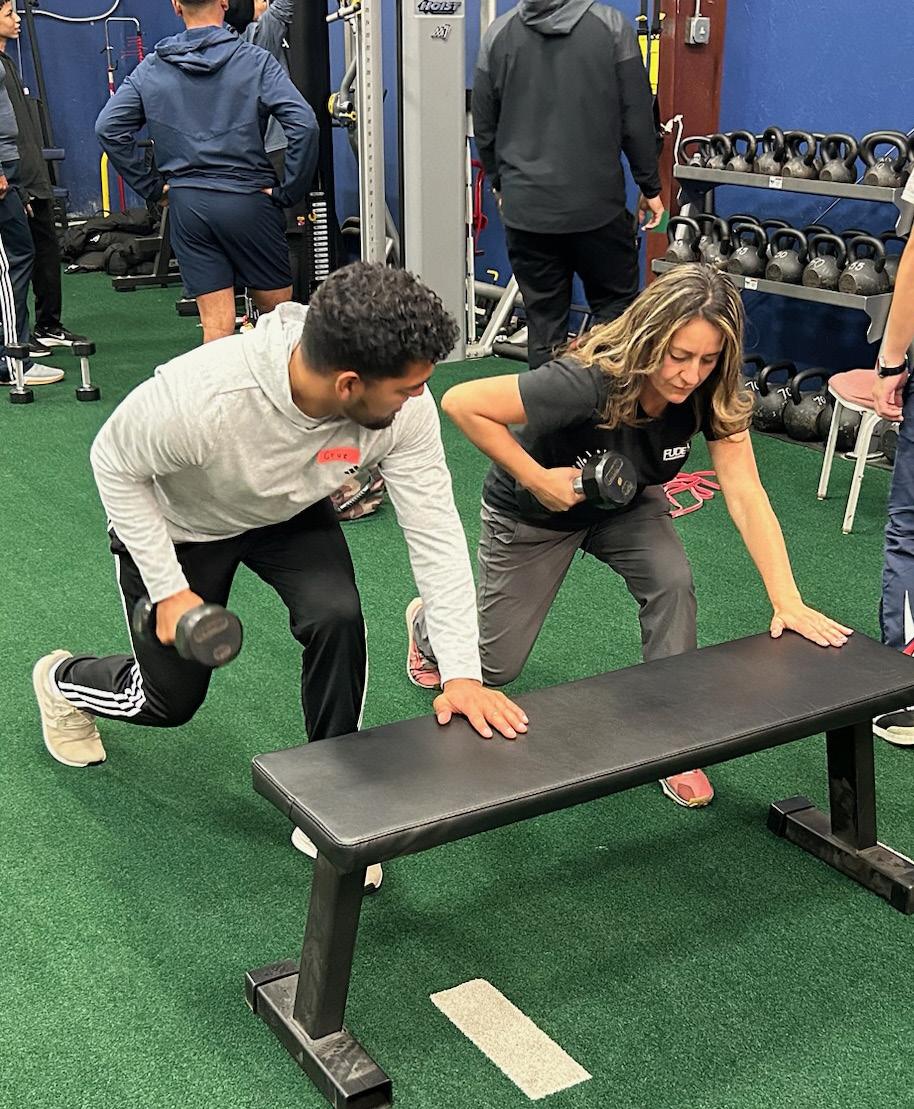
Sport has the ability to TRANSCEND borders & language “
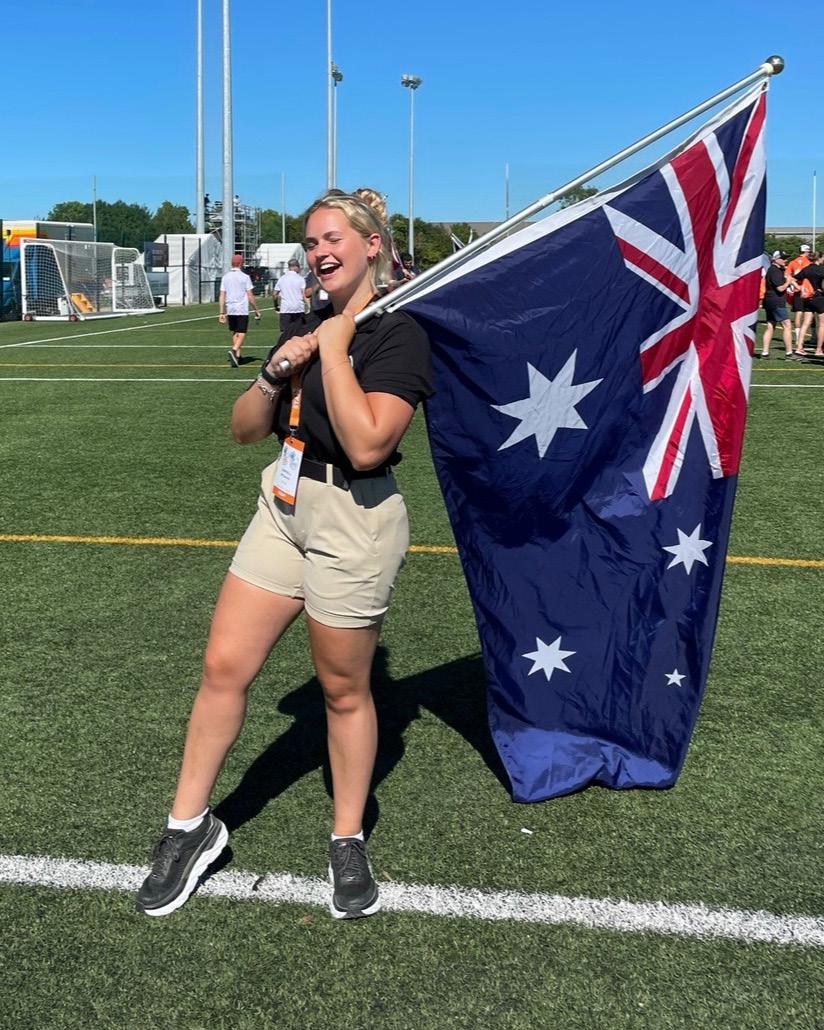
Within the past five years, Gonzaga’s Department of Kinesiology and Sport Management has grown far more internationally focused, boasting multiple study abroad experiences, plenty of international partnerships, and even a sprinkle of diplomacy.
“This is a global industry in a globalized world,” said Ryan Turcott, professor of Kinesiology and Sport Management. “Sport is too big to think it’s only here in the U.S.”
In 2022, the department’s first sport management course taught abroad, “Let Them Play: Adaptive Sport in a Global Society,” took place at Gonzaga in Florence. “It centered around disability access in sport,” said Karen Rickel, professor of Kinesiology and Sport Management. “We met with wheelchair basketball teams and visited a camp that helps kids with life-threatening disease access sports.”
Again in 2023, Turcott and Rickel returned to Gonzaga in Florence, this time to teach the course “International Sport Management and Culture.” It focused on the crosscultural context of sport and the issues that surface when examined through an international lens. It also sought to bring greater awareness and understanding to students’ intercultural competencies and conflict management skills needed to function effectively in the international sports environment.
“It was kind of a gateway to me wanting to travel everywhere,” said senior Campbell McGahan, who went on to study and hold internships in places like Australia, Ireland and Prague. “I learned it’s possible to build connections with people of all backgrounds. With all this travel and connecting with people, I’ve never felt this self-assured before.”
The same year, the Kinesiology and Sport Management department received a $175,000 grant from the U.S.
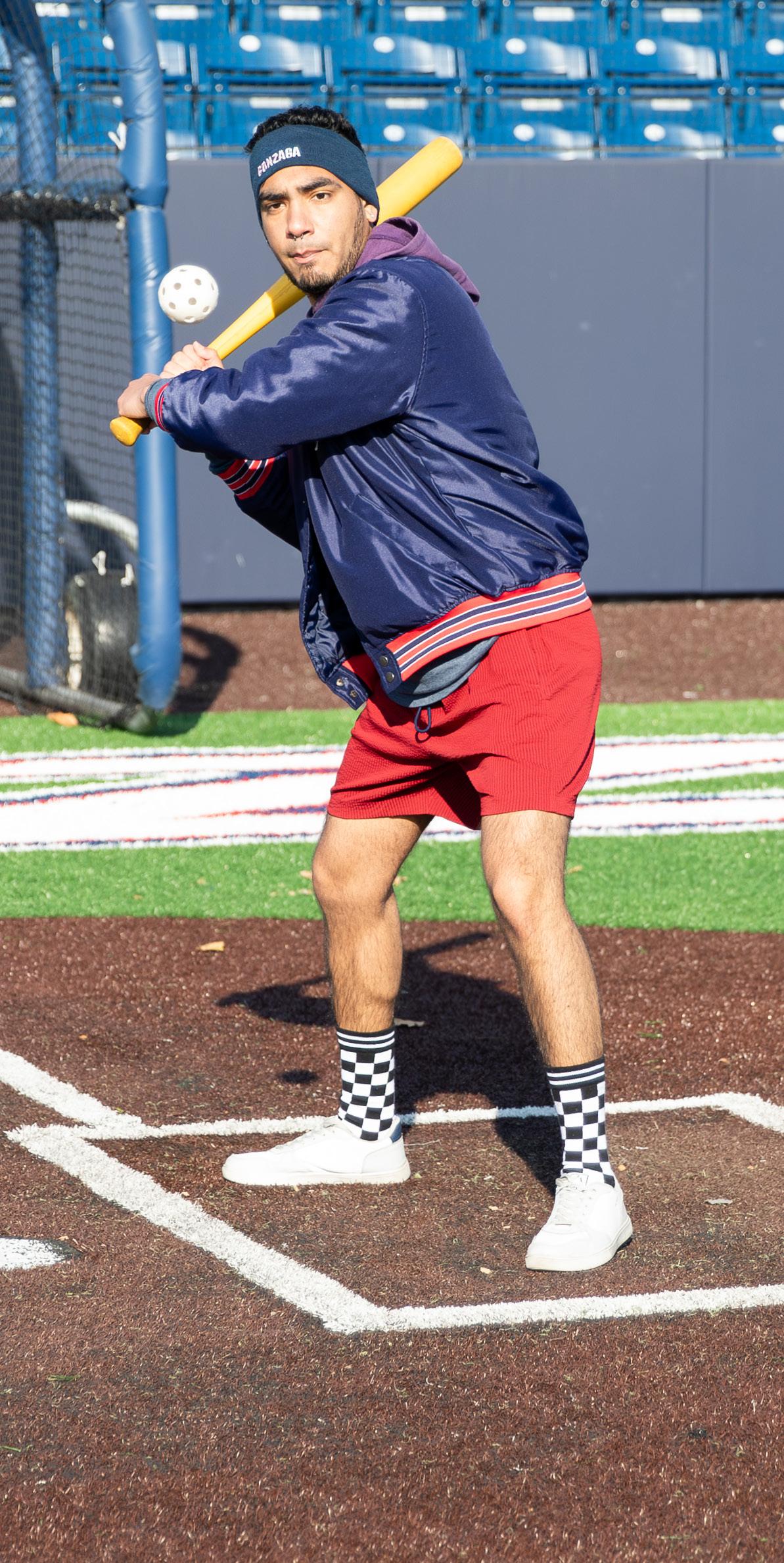
Department of State for a sport diplomacy project called “Pitching for Change,” a program that would use baseball as a vehicle to influence diplomatic, social, and political relations. The two-way exchange program allowed Turcott to take 12 Gonzaga students and community leaders to Ecuador, where the two groups hosted a series of baseball clinics in Guayaquil and Quito.
“It was truly a blessing to be able to meet the people there, to talk to them,” said Noah Sherrell, who participated as a student. “Sport has the ability to transcend borders and language.”
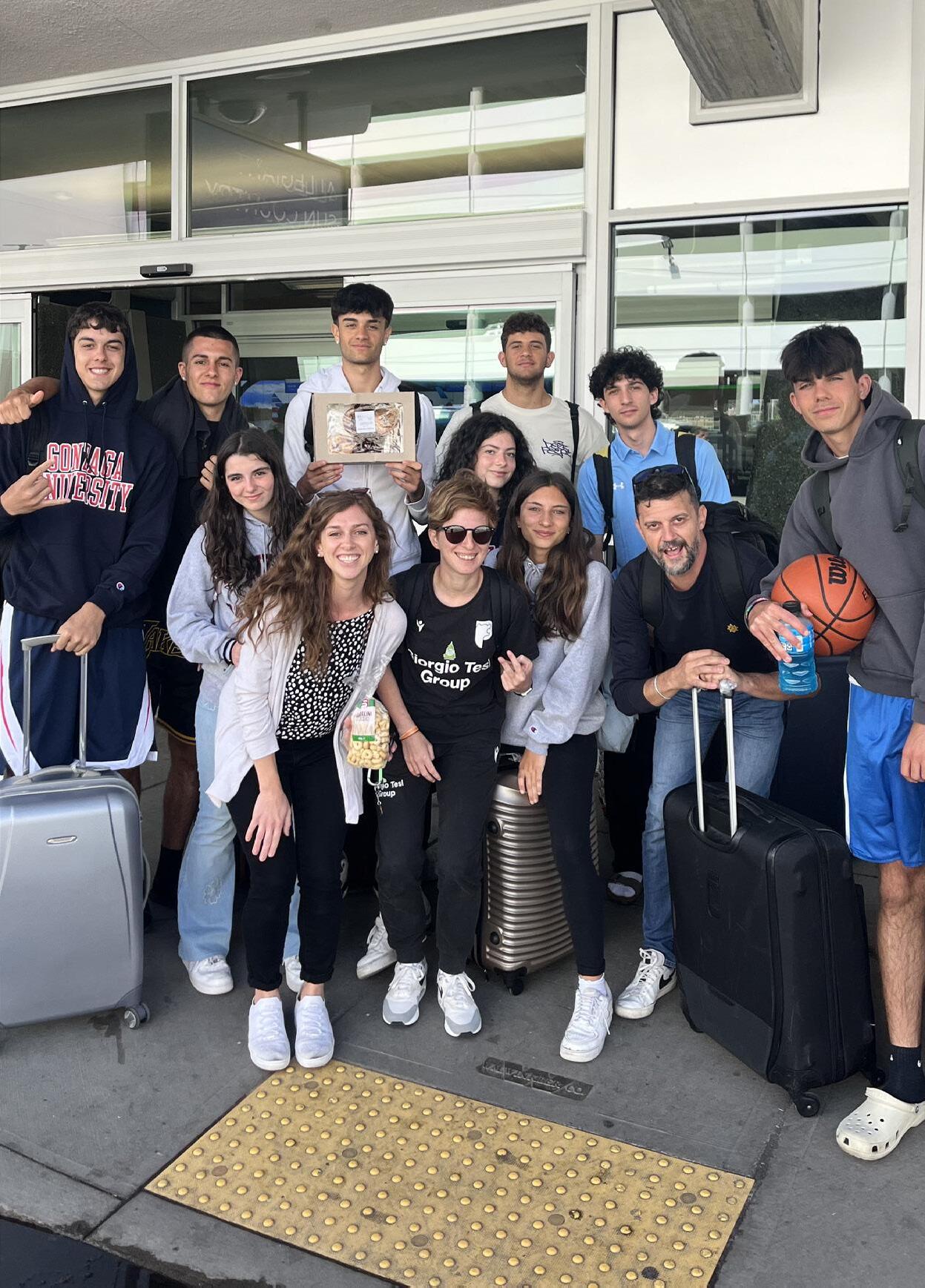
Additionally, he said, Ecuador showed him the power of sport as a community-building tool.
Following Gonzaga’s week spent in Ecuador, Gonzaga hosted 12 baseball players and coaches from Ecuador, Colombia, and Venezuela. The groups came together again to put on coaching clinics and baseball workshops.
They also partnered with Spokane Sports Commission, Spokane Indians, and Gonzaga Baseball to present many views of what working in professional athletics can look like.
“A big goal was making sure it’s reciprocal, that we’re learning from them and they’re learning from us, and I think that was a success. We dismantled the power dynamics to where it was an open forum, both in Ecuador and in the U.S.,” said Turcott. Even now, the students continue to stay in contact with each other through WhatsApp .
For three years, Kinesiology and Sport Management has partnered with the prestigious professional Italian basketball team, Pistoia Basket 2000 which provided students hands-on experience in sport management while helping to enhance managerial and operational systems.
Students give recommendations on areas including hospitality, tourism, merchandise development, social media, ticketing sales strategies, fan engagement, and more. In past years, students have designed new jerseys
for the team, created promotional videos, organized news conferences, and planned marketing campaigns.
In return, Pistoia Basket sent a girls’ team and two boys’ teams to participate in Hoopfest, marking the first time Italy was represented on those courts.
“We all had a blast and we quickly became like a little family,” said Carissa Basile, assistant professor of Special Education, who hosted the Pistoia Basket girls’ team. “I especially loved taking the girls around Spokane in their free time to explore and try American food.”
In 2023, the department signed a memorandum of understanding with Pistoia Basket to signify their commitment to fostering such exchange programs.
“We want to continue to build on Gonzaga’s reputation for hosting international students, student-athletes, and study abroad initiatives,” said Turcott.
Since then, the Kinesiology and Sport Management department’s international focus has led students to France, where they attended four Olympic events, visited Monaco’s Formula 1 Grand Prix premises and Nîmes’s Tour de France site, and toured a world-class sport, kinesiology and research lab called Human Fab.
“Students learned about the sociology and logistics around sport,” Rickel explained. While visiting, students were hosted by Aix-en-Provence Rugby’s administration team.
“Every day they could get to the court, students would go play pick-up basketball with French people, building friendships and bonds,” Rickel said. “More than anything, students are able to get out of their comfort zones, develop new problem-solving skills and intercultural competencies, and learn what cultures across the world are like and what that means for sports.”
When Phillip Roe (’23) enrolled in Turcott’s International Sport Management and Culture class, he believed his future in sport lay in playing baseball. He’d played junior college baseball before transferring to Gonzaga, but the class taught him something unexpected.
“Taking the class, knowing Turcott had those experiences, made me realize I didn’t have to be a minor league baseball player to make an impact in sport,” he said. After graduating, he served as junior development officer for the Wanneroo Giants in Madeley, Australia, then started his career as an international baseball scout in Japan and Australia.
Roe’s story, while inspiring, is not unique for the Department of Kinesiology and Sport Management’s graduates, who have gone on to secure positions in professional or intercollegiate sports across the United States.
According to Turcott, they consistently highlight how their international experiences have allowed them to enhance their critical thinking, problem-solving, and intercultural skills – abilities they have been able to directly apply even to their U.S.-based roles.
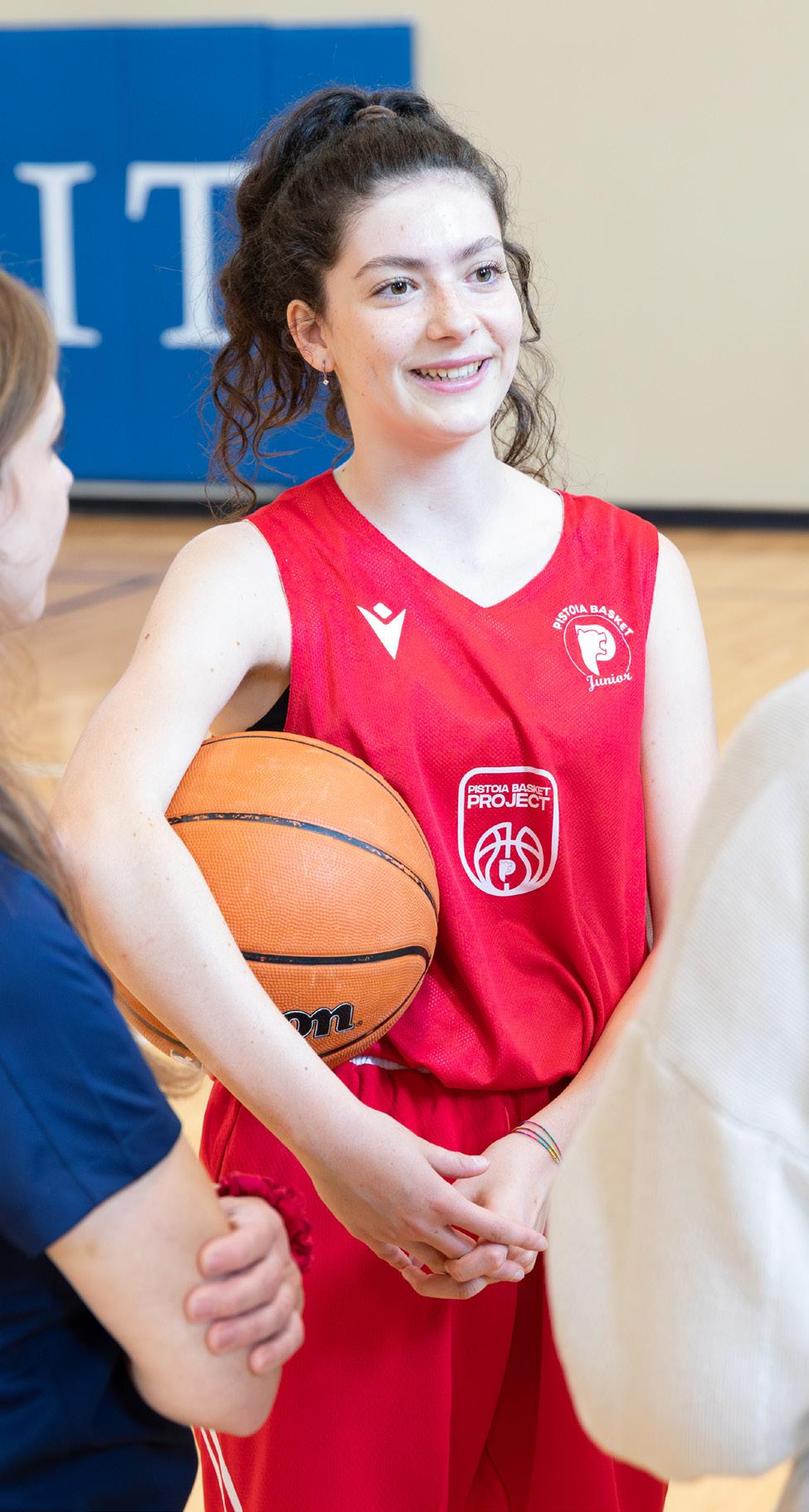
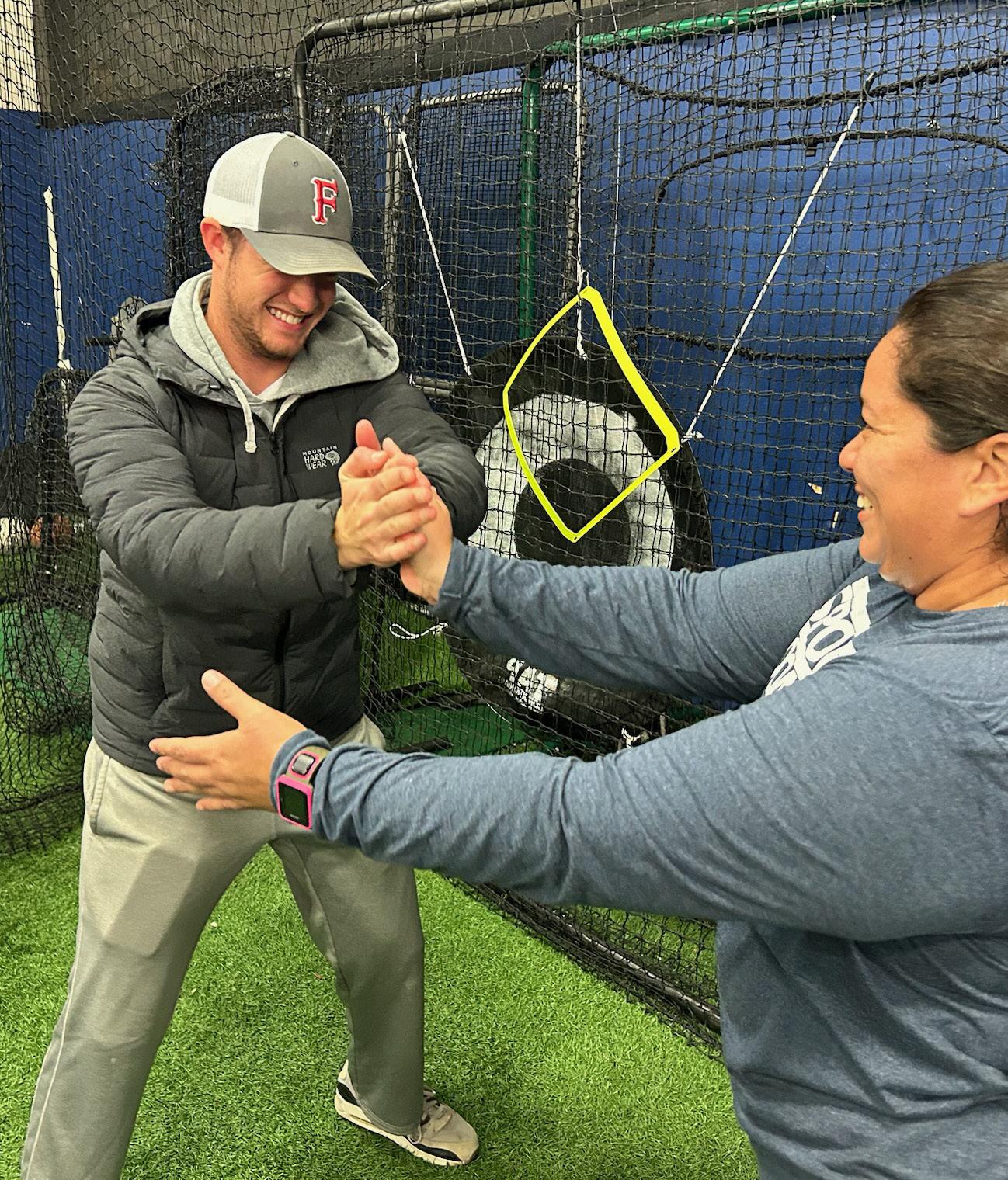
It’s possible to of all backgrounds BUILD CONNECTIONS with people “
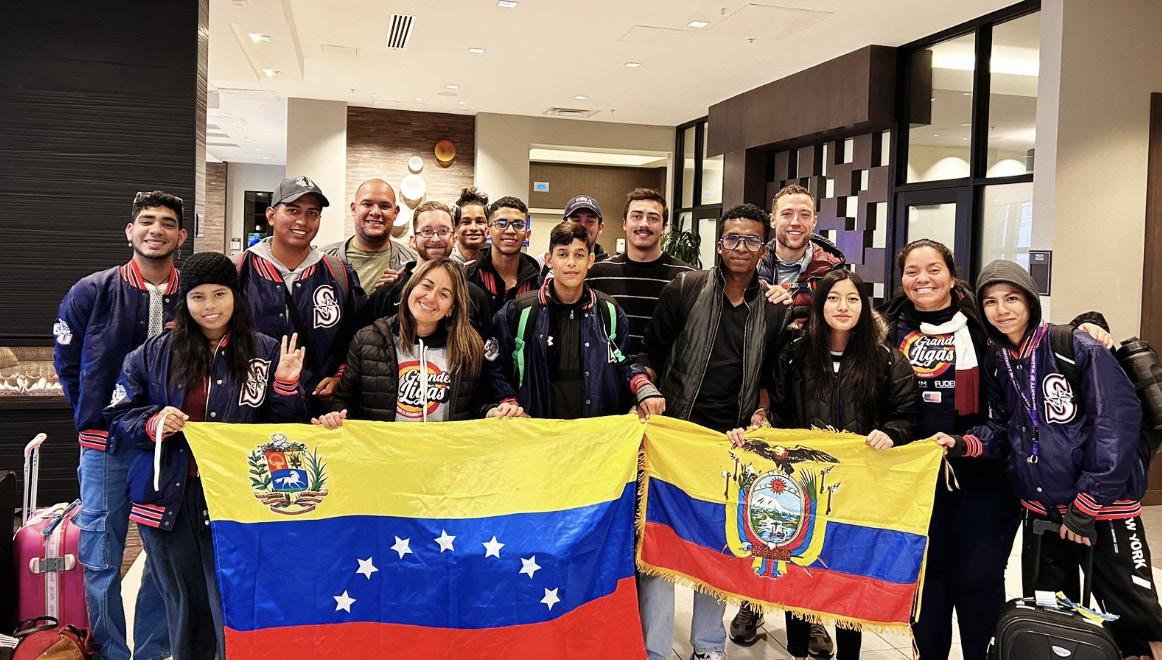
Thousands of people across Washington state suffer from behavioral health and substance abuse disorders, according to the Behavioral Health Workforce Development Initiative (WDI).
Washington is among the lowest-ranking states in the U.S. when it comes to serving people with mental health challenges; in fact, almost 25% of adults with mental illness have reported that they have been unable to access care.
That’s where the WDI comes in. With funding provided by Steve Ballmer, former Microsoft CEO, Los Angeles Clippers owner, and native Washingtonian himself, the WDI offers two-year grants to graduate students in accredited clinical mental health programs who commit to providing behavioral health services reimbursed by Medicaid. This “conditional grant” is worth up to $51,500 in scholarship.
“A lot of students wouldn’t be able to come here without this,” said Emily Rogers, Gonzaga’s clinical placement coordinator. “You end up with hardly any debt.”
“I expected to have to take out significant loans,” said Rodrigo Orozco, a first-year in Gonzaga’s Clinical Mental Health Counseling graduate program. “It was a huge sigh of relief.”
Orozco, who has wanted to be a counselor since he took his first psychology class in high school, is now set to intern at Partners with Families and Children, a behavioral health agency that supports those experiencing trauma and crises.
“It’s allowed me to focus more on my studying and on my classes,” Orozco said. “I have one semester under my belt, and all of my professors are already equipping us with the skills we need to succeed.”
In exchange for their low-debt educations, students complete internships and practicums at a WDI-approved site, and are required to work at one of these locations for at least three years upon graduation.
In addition to Partners with Families and Children, site options include agencies like Community Behavioral Health Services, a Catholic nonprofit providing individual, group, and family therapy; and Frontier Behavioral Health, a trauma-informed care organization offering programs
including psychiatric services, psychological services, and elder services.
Regardless of clients’ ability to pay, students “must provide substance abuse and mental health counseling,” said Rogers. “It can feel daunting and overwhelming; these students are doing some of the hardest work this field has to offer, but they are doing it in the most supportive environment possible.”
Erin Popelka, a 2024 counselor education graduate and WDI recipient, is currently fulfilling her post-graduation commitment to her community behavioral health agency of choice, Lutheran Community Services Northwest.
“My client population is, predominantly, survivors of sexual assault and sexual exploitation. We work on clientled treatment priorities, including healing for trauma, emotional coping skills, and tools for healthy self-care.”
She serves those with limited access to behavioral health services, and who may not be able to access counseling through other means.
“This includes clients who are living in Spokane’s emergency housing shelters and other residential programs, and those who receive additional assistance, including food and employment support,” added Popelka.
On-site, Popelka has trained in Eye Movement Desensitization and Reprocessing (EMDR). “Because of my focus on clients who have survived sexual assault, practicing with a research-based treatment modality for trauma is essential in my work,” she explained. “Through EMDR and other research-based modalities, I’m able to offer clients a path forward to heal from the daily symptoms of their trauma.”
Those symptoms include nightmares, flashbacks, panic attacks, difficulty with concentrating, and irritability. Popelka said her clients have reported a reduction in their symptoms and increased hope and self-confidence.
Popelka’s inspiring story is not unique. Since the recent inception of the WDI, Gonzaga students have been using their scholarships to serve the needs of Washington state.
“They are helping people with pretty serious mental health issues,” said Rogers. “Their responses have been gratitude.”
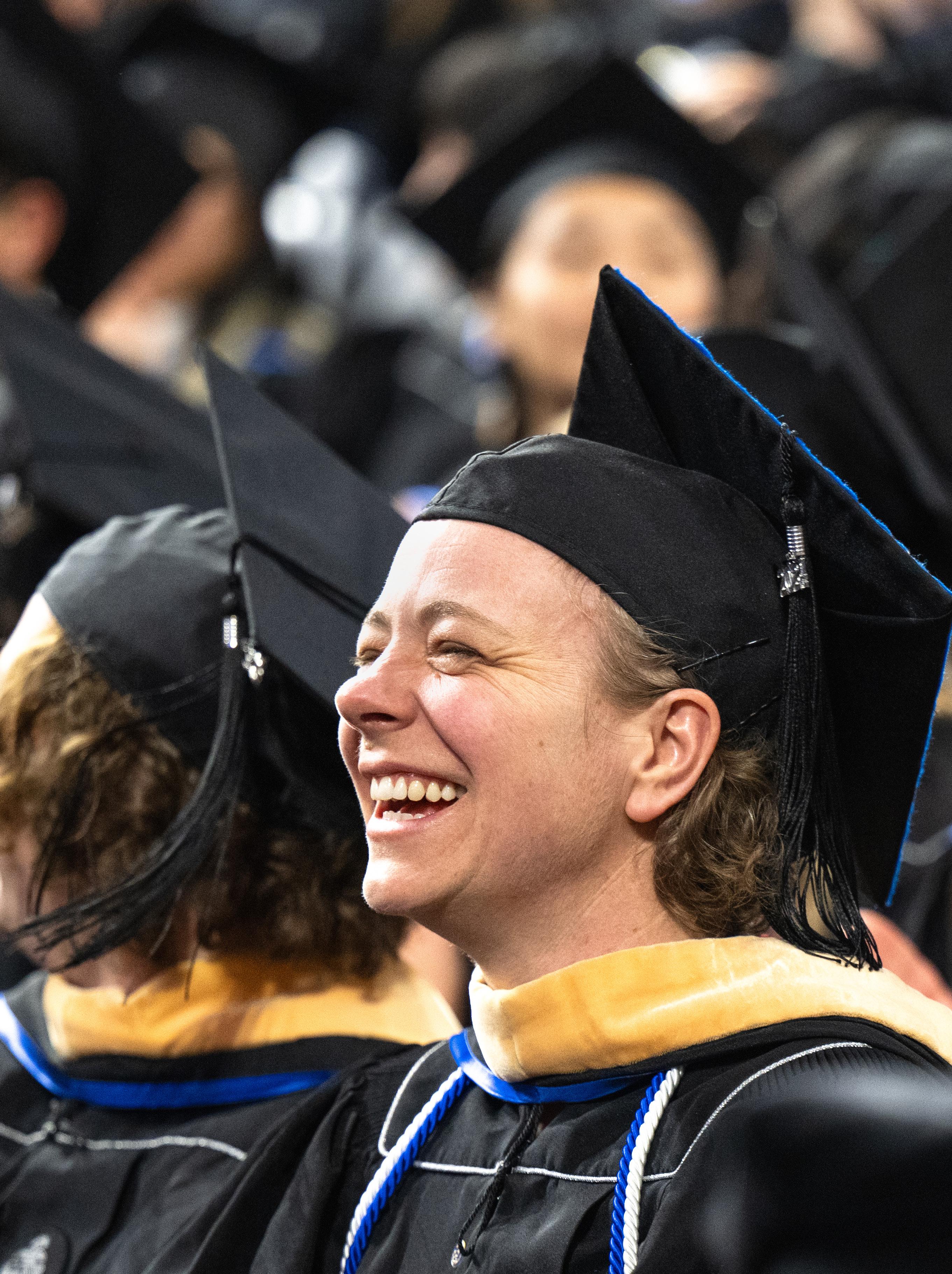
I’m able to offer clients symptoms of their trauma. A PATH FORWARD to heal from the daily
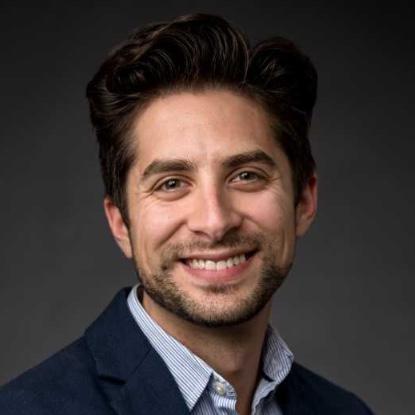
The American Counseling Association’s Society for Sexual, Affectional, Intersex and Gender Expansive Identities (SAIGE) seeks to “place in bold” the mental health concerns experienced by LGBTQ+ individuals, according to Rob McKinney, professor of Counselor Education. For the past three years, he’s also served as president-elect, president — and now, former president — of SAIGE.
As president, McKinney created a national online conference and themed its inaugural year, “Transforming Global LGBTQ+ Mental Health.” He secured guest special speakers from Malaysia, Tanzania and Puerto Rico — all of whom were a part of the LGBTQ+ community and in some capacity involved with mental health services. The conference featured countless education sessions with titles like “Dear Cis Het Counselors,” “A Trauma-Focused Approach to Treating Gender Dysphoria” and “Gender Affirming Counseling in South Asian LGBTQ+ Spaces.” McKinney now provides mentorship to the current president and president-elect.
Outside of SAIGE, McKinney’s professional interests include multicultural curriculum, which he has expanded from one course to an entire sequence. “After the infusion of the sequence, students are more secure going into their clinical internships with multicultural elements in the work they are doing,” he said. “It helps them understand who their client is, not just as a client, but as a cultural being.”
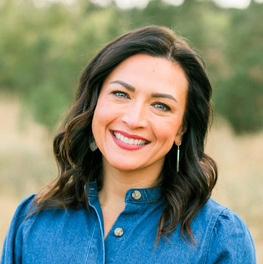
Addy Wissel has spent her career advocating for students. A former school counselor and school psychologist, she now teaches prospective counselors. After contributing several years as a vice president on the Washington School Counselor Association (WSCA)’s board and serving as chair of School Counseling and chair of School Psychology, she recently finished a three-year tenure as president-elect, president, and former president of the WSCA.
WSCA elevates the work of school counselors in Washington. “We increase understanding surrounding the role and function of school counselors,” she said. During her time on the WSCA’s board, for example, Wissel worked with the state legislature to strengthen the school counselor’s role, and to ensure each school has a comprehensive school counseling role in place.
As president, Wissel hosted WSCA’s annual conference, drawing nearly 1,000 school counselors from across the state for full-day workshops on topics such as antiracist practices, supporting children in foster care, multilingual learners and migrant youths, as well as elementary student mental health and teen suicide. “We are really attentive to what our unique needs are across the state,” she said. “We hosted our first eastside conference, so we could tap into some of these, like supporting rural counselors.”
Now, following the end of her presidential term, Wissel attends WSCA conferences with her students. Second-year students mentor first-years in the creation of a professional poster, then both students co-present it. “Taking them with me is what I love most,” she said. “We try to get students to understand the vastness of the work and the opportunity of the work.”
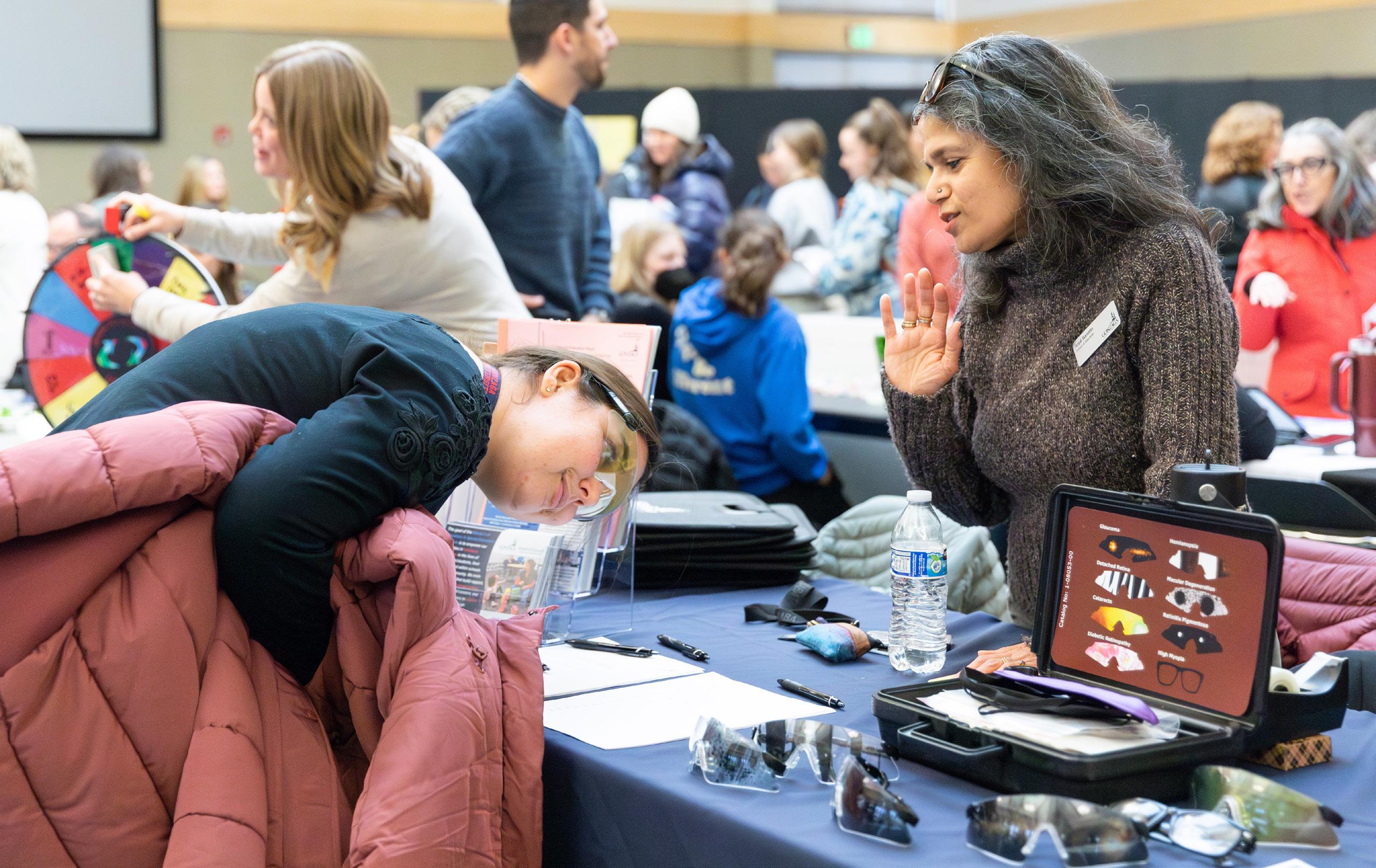
In 1975, Public Law (PL) 94-142 – also known as the Education for All Handicapped Children Act – changed everything for the nearly 2 million American children with disabilities who had historically been barred from attending public schools.
It disallowed states from continuing to choose who could go to school and who couldn’t and instead mandated that all children, regardless of disability, should have a free appropriate public education. In addition, the act guaranteed a child’s right to attend as many regular education classes as possible, and marked the beginning of individualized education programs.
“If kids are identified with a disability, but are being denied access, then parents and other individuals can challenge them on it,” said Kimberly Weber, professor and department chair of Special Education. “Schools have to give you something for your child to learn.”
Since its enactment, PL 94-142 has seen many additions. In 1990, it was reauthorized and renamed the Individuals with Disabilities Education Act (IDEA). Notably, it charged schools with the task of creating transition plans by the time students turned 16.
Individual Education Plans (IEPs) would delineate goals and strategies to prepare students for independent living and potential employment. In 2004, IDEA was reauthorized
to allow early intervening services for children who need additional academic and behavioral support and called for improved educational outcomes. And in 2016, lawmakers introduced an Equity in IDEA regulation, ensuring that children with disabilities are properly identified, and that children of certain racial minorities are not over-identified due to racial or ethnic bias. But still, according to Weber, there is work to be done.
“In some places, kids aren’t included, and in others, they are included when it is their best interest not to be,” she said. “And we need more people around them. Some kids may not be able to be supported, because schools don’t have the supports in place to make sure those kids do well in those environments.”
Gonzaga Teacher Education students, she added, are often in these classrooms assisting these students even before they begin student teaching.
In honor of PL 94-142’s 50th anniversary, Gonzaga’s Department of Special Education hosted its first Zags for Abilities Fair, which brought local organizations together to deepen students’ understandings of disability inclusion and advocacy. Students learned about learning disabilities, disability legislation, and physical disabilities and inclusion in sports.
Weber plans to continue Gonzaga’s tradition of advocating for radical inclusion of people with disabilities.

The role of language & cultural understanding in shaping community
“It’s a major to meet the moment,” said Anny Case, professor of Teacher Education. Majoring in Community, Culture, and Language (CCL) offers two concentrations. Its Elementary Education concentration provides paths for students to teach in the classroom; its Community concentration gears students towards community education outside the four walls of a classroom. In both concentrations, students are equipped to be responsive to linguistic, cultural, and racial differences within all areas of education.
For future elementary school teachers, CCL’s elementary education concentration is the way to go. Students learn through a blend of theoretical and practical modalities of all kinds; they must participate, for example, in two sustained language-learning experiences, typically taught by Indigenous educators.
“You’re not just learning nouns and verbs, you’re learning the culture,” Case said. “Tlingit and Marshallese are languages that have been threatened by colonization. There aren’t many speakers alive, but our students had the opportunity to get a window into these cultures not only to discover new, deep, and beautiful ways of seeing the world – but also, they learn new ways of seeing their own.”
Across the country, there are few elementary education programs that prepare students to think about language as a construct, outside of English Language Arts. But Case, whose scholarship focuses on multilingual learners, explained that CCL emphasizes the ways in which humans use language as a tool for both empowerment and disempowerment.
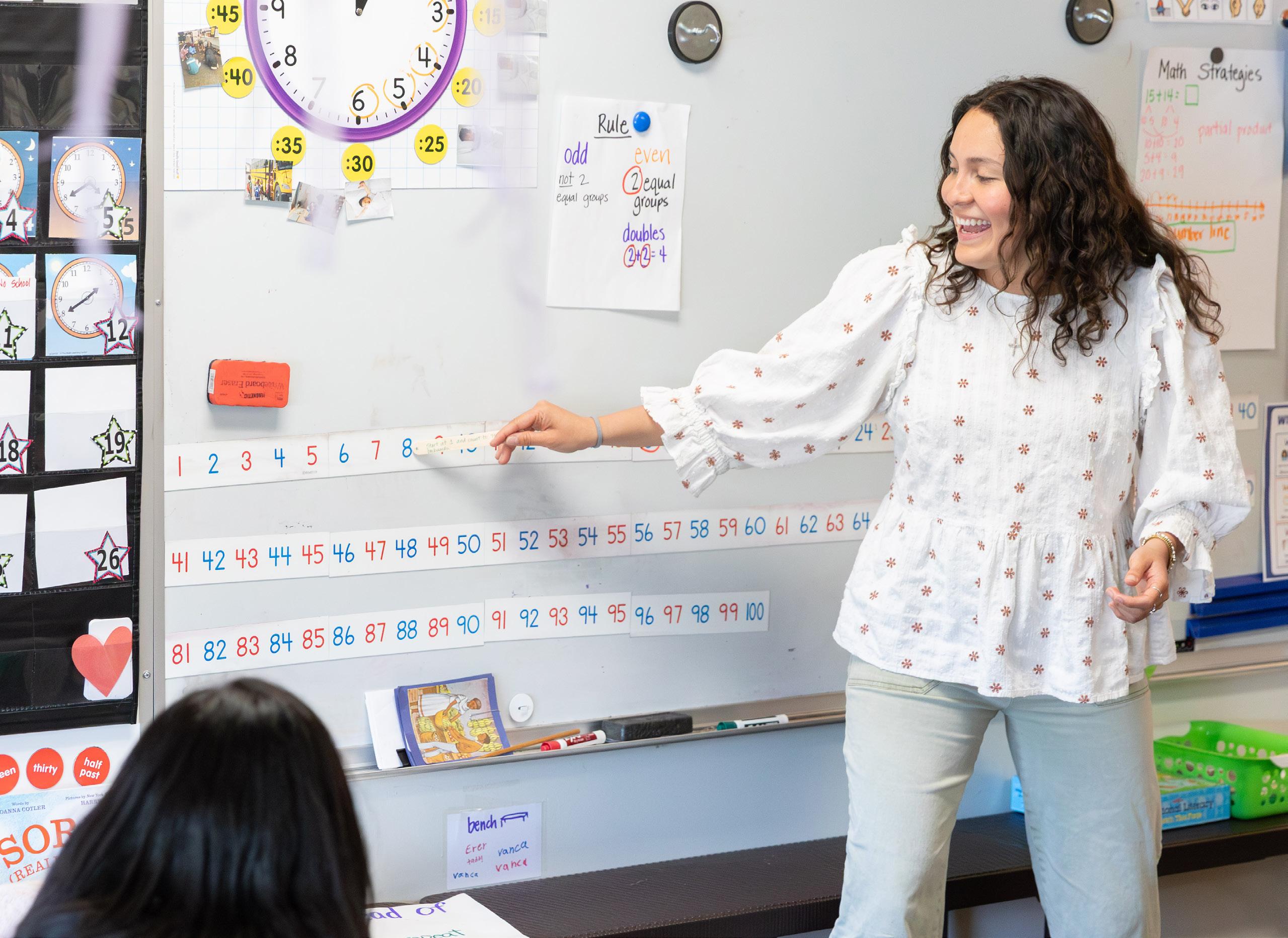
“CCL taught me how to be a part of a community that is holding language and culture up as something that is an advantage,” said senior Halle Aparicio. “It has taught me that the way to make change is not to reach for power, but to reach for each others’ hands.”
Aparicio was serving in a second-grade cluster classroom and working one-on-one with a student who spoke Spanish, but not English. “It was so hard,” she said, “so I decided to switch languages.” She asked him if he could teach her in Spanish. It was difficult, but when she finally “got it,” the student leaned in.
“Good job, Miss Aparicio,” the student said. “I’m so proud of you.”
The Elementary Education concentration is embedded within the greater Spokane community. Throughout the year, Gonzaga students run after-school literacy programs and literacy enrichment activities with English language learners, many of whom are adult learners.
And Gonzaga’s Summer Language program serves Spokane’s English as a Second Language (ESL) community by providing STEM-based ESL classes.
“Last summer, we hosted about 150 kids who spoke fourteen to fifteen different languages between them,” said
There’s a
is very amazing. DEPTH & SOUL to this program that “
Aparicio, who served as a teacher’s assistant. “We got to spend the month of July learning from each other.”
Additionally, students take an advocacy capstone class, in which students select an issue they want to work on, identify a specific policy and do something about it. In the past, they’ve even met with legislators to advocate for the creation of new policy.
“It’s a really unique course when they realize they aren’t just subject to policy, but that they can shape policy. There’s a depth and a soul to this program that is very amazing,” said Case.
CCL’s community concentration, on the other hand, is not just an “off-ramp” option for students who decide against teaching in schools. It is a full-fledged education program in its own right, placing emphasis on community education and engagement. Graduates have gone on to teach English
abroad and in nature schools, to work for Christian youth organizations and to serve immigrant and refugee populations.
“There isn’t any kind of industry where you’re not dealing with issues of culture,” said James Hunter, professor of Teacher Education.
Hunter, an applied linguist and ESL teacher himself, has spent his career in service of ESL communities.
At its inception in 2019, He sought to design a program that would reimagine education as “cradle-to-grave,” a lifelong endeavor.
Now, the program features courses like “Policy and Advocacy,” “Language, Society, and Power,” “Immigrant and Refugee Perspectives,” “Community and Place-Based Education,” and “Community Languages.”
Students also complete internships at sites that embody Hunter’s cradle-to-grave philosophy. They are encouraged to work with children, immigrants and refugees, retirees, and all populations in between.
“Whatever vocational suspicions students have about themselves usually get confirmed in these settings,” said Hunter.
Majoring in CCL with the Community concentration only requires 34 credit hours; students are also able to pursue interdisciplinary courses, or to double-minor.
“We had someone come to us after three years of nursing education,” said Dr. Hunter. “Great, now you’ve got all that community health background.”
This year, Hunter is taking a group of students – many of them CCL – to Zambia, where they will study leadership and earn their Teachers of English to Speakers of Other Languages (TESOL) certificates throughout the course of a month. They’ll be in Zambia’s southern Provence, at the mouth of the Zambezi River.
“Lots of undergrads have the best intentions in the world and have never had experiences with anyone who doesn’t speak English,” Hunter said.
CCL changes that.
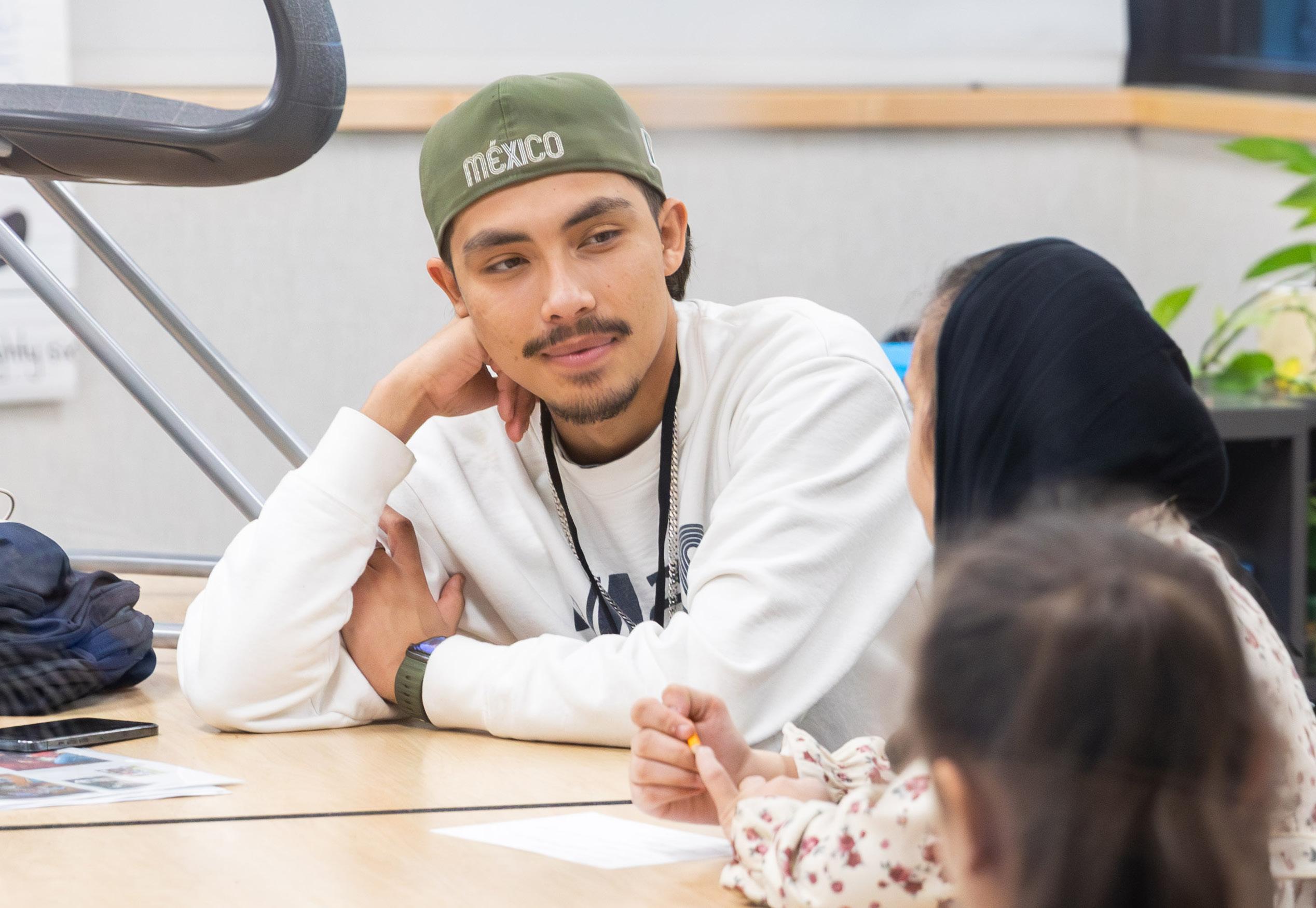
Janel Anderson, professor of Educational Leadership and Administration, left her K-12 teaching career after 19 years, and at the height of her skill.
“I was a good teacher,” she said. “I was creative. I was teaching the best courses and providing the best instruction of my career. But I was finding that, when kids were unsuccessful, I felt like the unsuccessful one.”
But she felt that other factors were at play, recalling one of her past students.
“He didn’t feel safe in my classroom; he was a kid who probably didn’t feel safe in many contexts in that school for social and structural reasons that were not his fault, and also didn’t have anything to do with me as a teacher,” she said. “What do I do? I’m trapped in that classroom 87 minutes at a time. Schools used to hire people whose job it was to go through the hallways, find kids like him, and build relationships with them to get them to come to class. But it needs to be the teacher who builds that relationship.”
For the last 25 years, as schools have continued to be defunded, as education programs are taken away, the job of the teacher has changed. Teachers are now in positions in which they are forced to try to attend to traumas such as poverty, disease, and violence that certain students experience far outside the classroom.
This, according to Anderson, is the deeply unsustainable “new work” of teachers. It’s why she left K-12 teaching to pursue a Ph.D. in Education Leadership and Policy Analysis.
Her work is designed to improve teacher retention and student outcomes through reforms that nourish strong non-oppressive schools, while helping to recruit and retain remarkable teachers.
“What I seek is for us to look at the structure of public education, and to say this is an outdated system, and we have to change it,” said Anderson. The biggest solution, she said, would be to have smaller class sizes. In any given fourth-grade classroom, for example, students might
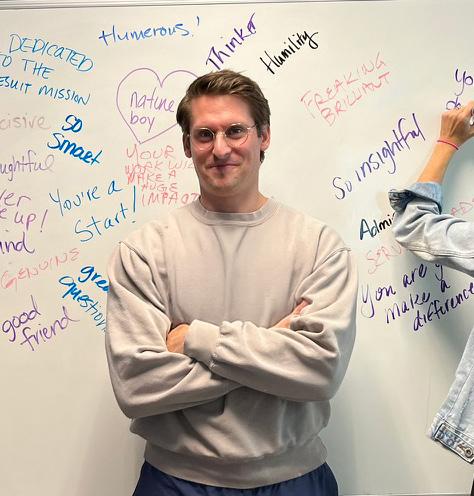
have 27 students; of them, 12 might have individualized education programs (IEPs), and in addition a teacher might have kids with anxiety, or trauma. The groups most benefitted by smaller class sizes, according to Anderson, are poor students and poor students of color.
“We need more teachers, and we need to double down and pay them well,” she said.
Anderson named other solutions, including teachers remaining with the same group of students for more than one grade level; she also believes that policymakers must stop prioritizing test scores over class size.
As an advisor, Anderson works with a great number of Ph.D. and Ed.D. candidates who are already embedded in public school systems.
“One thing that has been really powerful is thinking about what my role can be in understanding the work of the people who are working in classrooms every day with kids.”
One Ed.D candidate, Jill VanderVeer, serves as principal of Redmond High School located in Redmond, Washington. “Part of our role as doctoral students is to think critically about who is not being talked about, or who is not being considered. Everything is equity-focused.”
Anderson’s students have described how empowering it has been to have their experiences reflected back to them, to feel heard and hopeful about their ability to make change.
“The leaders we are building now are creating the schools we’ve needed for 25 years,” said Anderson.
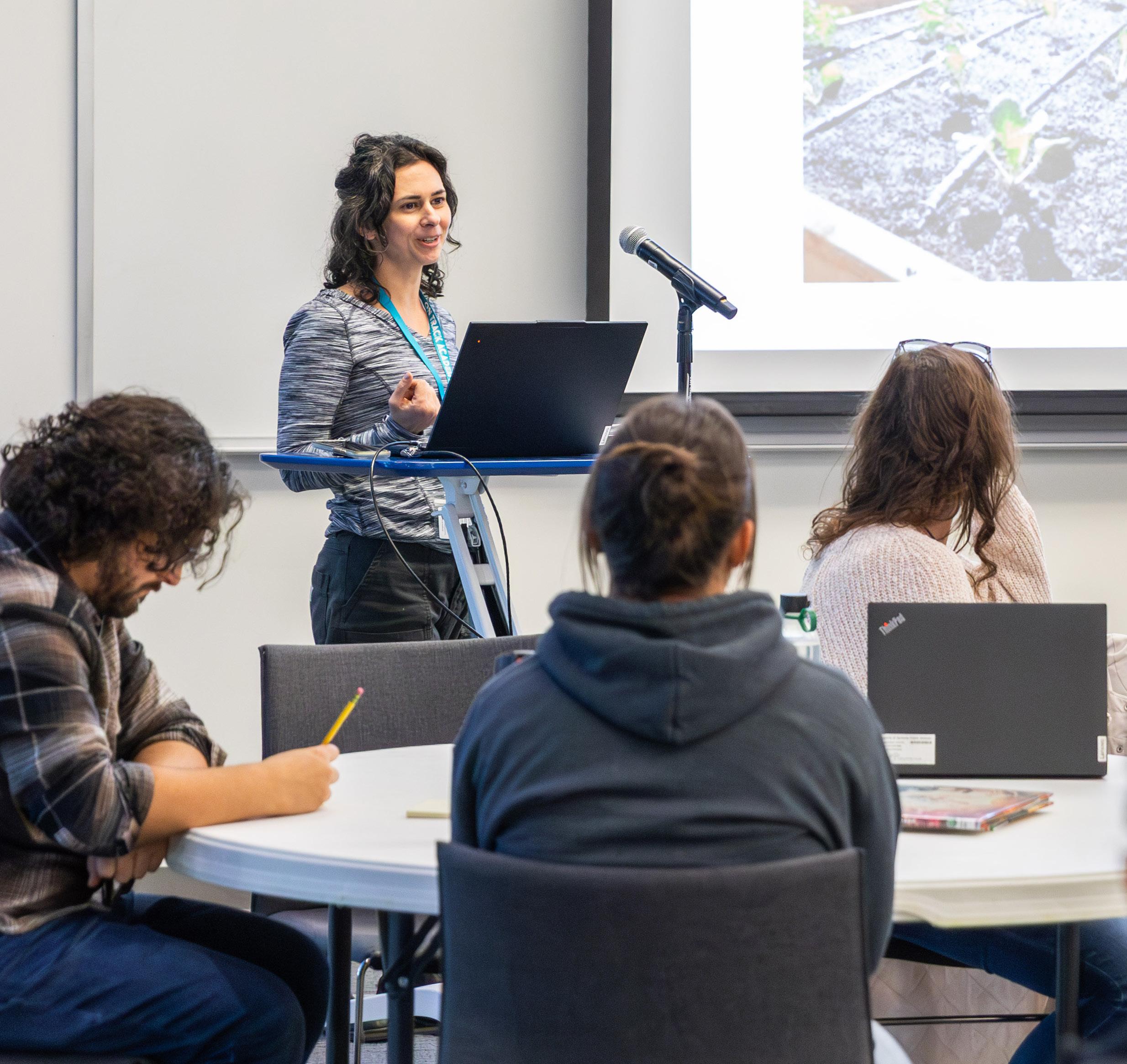
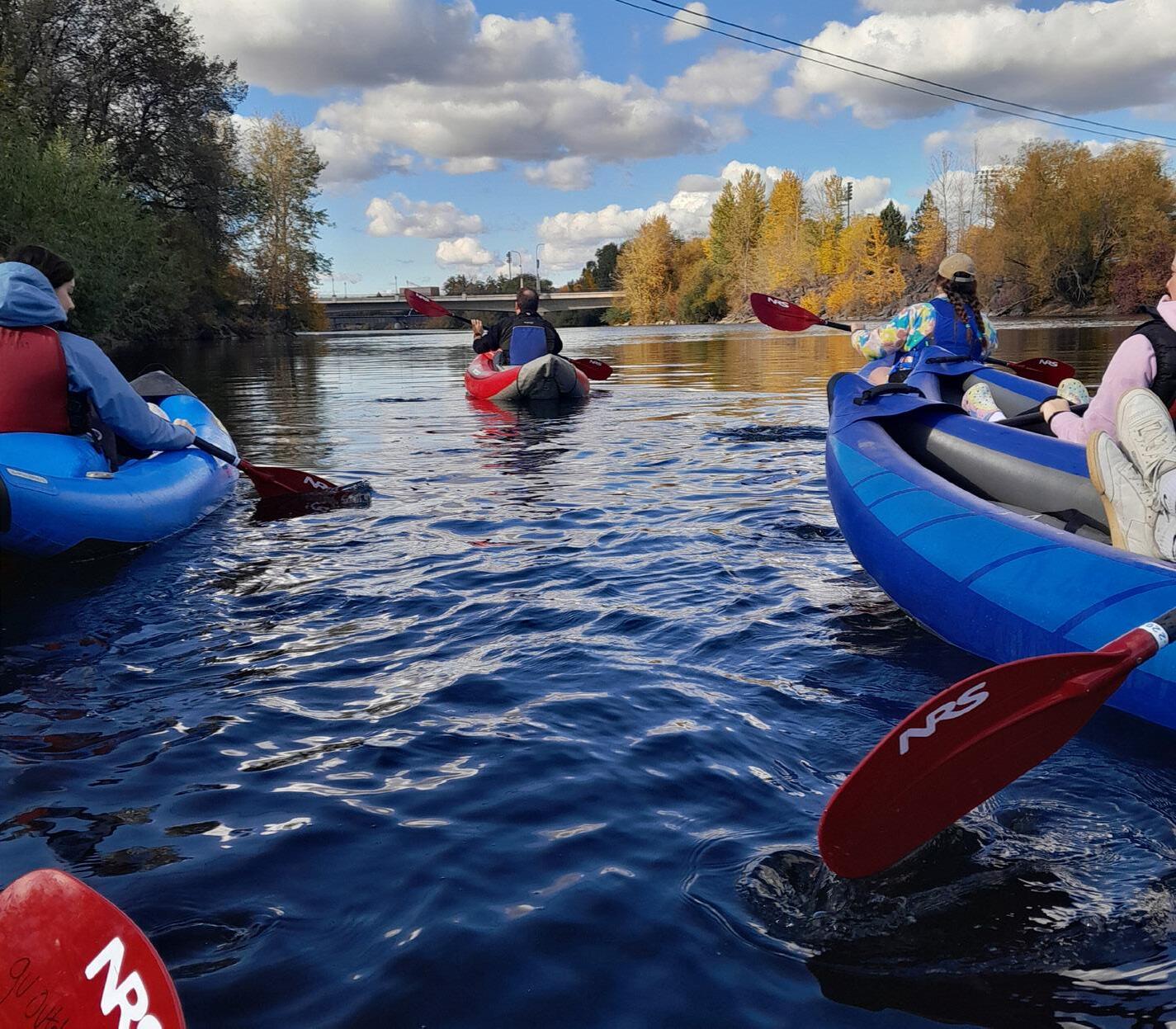

Gonzaga’s Climate Literacy Project helps teachers and students develop a foundational scientific understanding of the complex workings of our changing climate and its impacts; it also invites reflection on the larger cultural, economic, and ethical issues related to climate change.
“We’re looking at issues related to promoting a flourishing region in the face of climate change,” said John Traynor, professor of Teacher Education.
The Climate Literacy Project holds within it a number of programs, including the Climate Literacy Fellows program. Created in response to Spokane Public School students’ demands for climate education, Gonzaga’s undergraduate students learn to write and teach climate science in elementary and middle schools.
For example, students use flashlights to power solar panels and make sense of how energy is transformed; other topics have included wind turbines, microplastics, and the origins of food.
Since the program’s inception in 2021, GU has served 37 schools, visited 302 classrooms, and reached 5,000 students.
The Climate Literacy Project also hosts a workshop series for cohorts of K-12 teachers focused on exploring the intersections between climate and their teaching practices. These areas include place-based pedagogy, family and community engagement in climate learning, and climate justice.
Teachers are also encouraged to develop student action projects; in the past, teachers have created school gardens and climate sections in their school. At the conclusion of these workshops, teachers are eligible to receive a stipend and a field trip to an outdoor education site, among other resources.
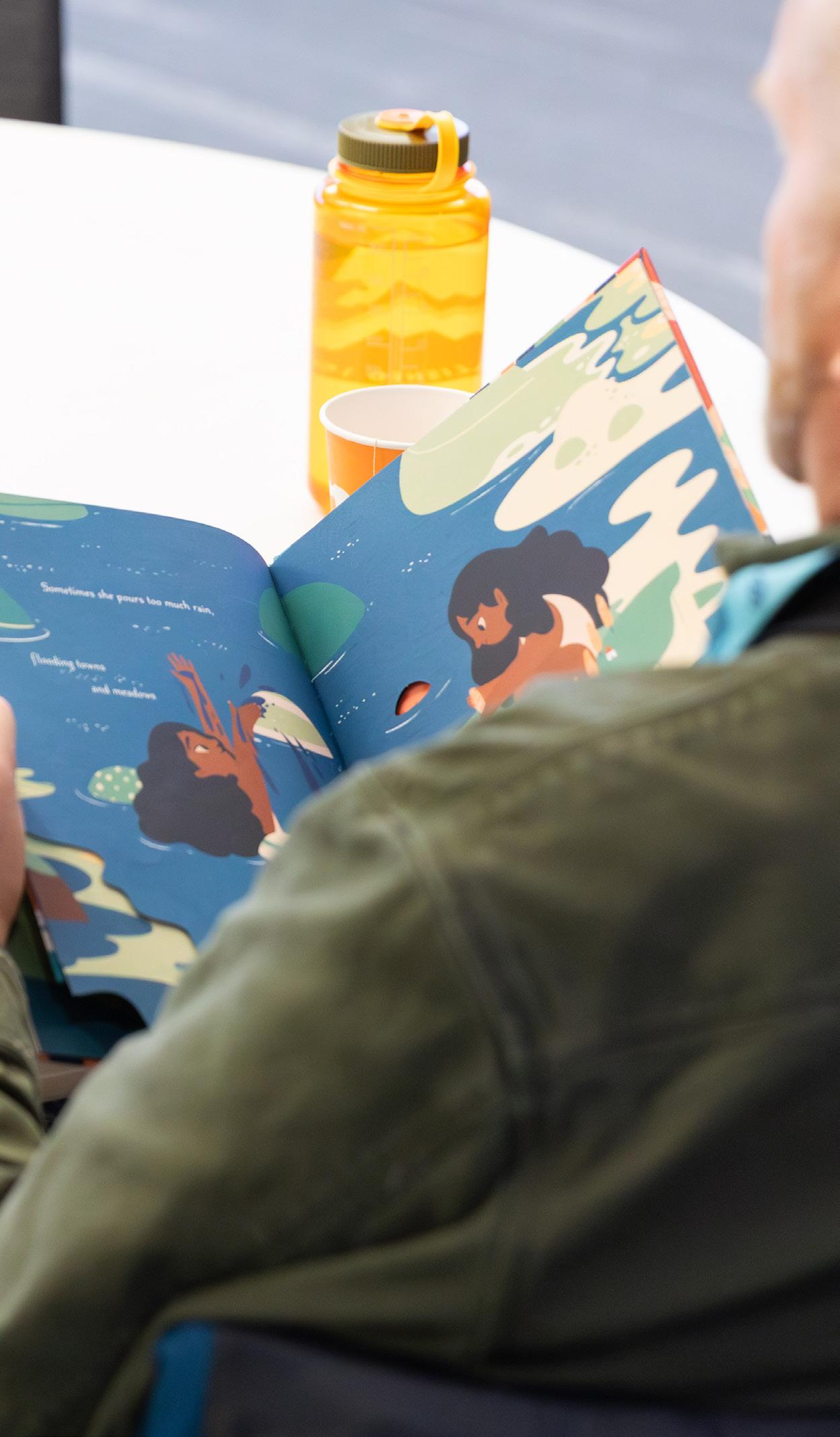
“This work has been a new direction for me professionally,” said Traynor. “It has been exciting.”
In addition to his work with Climate Literacy Project, Traynor engages his students through outdoor education experiences. He worked with Spokane School Districts to host fourth and seventh-graders on an immersive field trip in Riverfront Park centered around the Spokane Expo.
He also partnered with Gonzaga Outdoors to provide students an opportunity to bike, hike, or kayak during a class that focused on the organization of outdoor learning experiences.
“Given the effects of climate change we’re dealing with, we really need to provide support to teachers and future teachers so they can feel comfortable in engaging their students to learn about it,” Traynor said. “These current students are going to be the solution finders.”
Gonzaga’s Psy.D. in School Psychology program is a doctorate level degree that prepares students to become licensed-eligible psychologists.
“We are incredibly excited to have our first cohort of students moving into the dissertation phase of their studies,” said Kristen Arnold, professor of School Psychology. “This is a significant milestone, as it reinforces our emphasis on training practitioner-researchers who contribute meaningfully to the field of school psychology.”
According to Arnold, the dissertation process begins with coursework in advanced research methods and data analysis. Students develop a research proposal under the guidance of a faculty mentor, ensuring their work is both rigorous and applicable to real-world educational challenges. After approval, students collect and analyze data, culminating in a final dissertation defense.
One student, for example, is researching how targeted social-emotional learning interventions can improve the well-being and academic success of teenage parents, many of whom face significant barriers to completing their education. Another is investigating the availability and effectiveness of mental health services for youth in the juvenile justice system, and how school psychologists and educators can play a role in supporting educational transitions back into traditional school settings.
“Our mantra is to create dissertations that do good,” said Arnold. The School Psychology program itself seeks to do good, too.
“It is built around a commitment to service, ethical practice, and the preparation of highly competent school psychologists,” Arnold said.
The curriculum emphasizes social justice, equity, and mental health advocacy; and features a number of community partnerships where students engage in applied research and gain real-world experience.
Faculty are engaged in research on topics like traumainformed practices, culturally responsive assessment, and evidence-based interventions in schools. Upon graduation, 100% of students secure high-quality internships and job placements.
“We take pride in preparing school psychologists who not only excel in their professional roles, but also contribute to advancing the field through research and advocacy,” said Arnold.
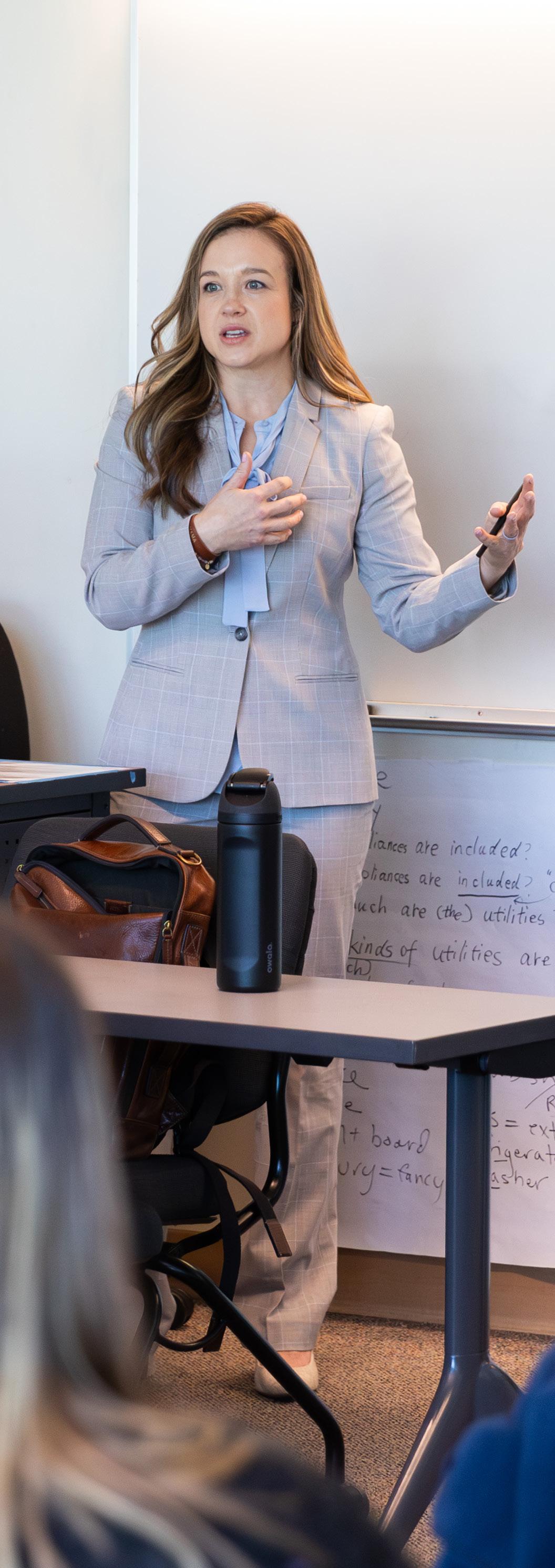
Gonzaga’s School Psychology (Psy.D.) doctoral program is designed to create agents of change, to put forth graduates who would do tangible good in their schools and communities.
Miriam Carlson is already doing exactly that. Since earning her Education Specialist in School Psychology (Ed.S), she has been a practicing school psychologist at Innovation High School.
Now, as she completes the final year of doctoral studies in the Psy.D. program, Carlson has broadened the ways she is able to help her students.
“Sometimes you get a case and it’s really challenging,” she said. “I’m able to look at cases in different ways. I can ask, How can I look at this as a psychologist? How can I look at this from a diagnostic lens?”
To Carlson, her work is about relationships. “I have to be accessible,” she said. “I know the names of my students. Kids come to my office between periods, and I ask how their brains are doing and how I can support them.”
Carlson also collaborated with Gonzaga students to provide small group counseling sessions to kids. “They’re figuring out interpersonal skills,” she said. “Gonzaga students are making sure everyone feels safe, knows they are supported, and wants to be there.”
Next year, Carlson intends to continue to provide socialemotional group counseling and help connect families to mental health resources outside the classroom.
“My internship will be completely clinical,” said Carlson, who plans to intern at a local hospital.
Earning her Psy.D. will provide her with a pathway to licensure as a psychologist; in the future, Carlson could work in clinical areas like psychiatry or pediatrics. A community-builder at heart, Carlson is excited in part to try working in a hospital setting in part because it paves the way for other Gonzaga students to do the same.

FEELS SAFE making sure everyone
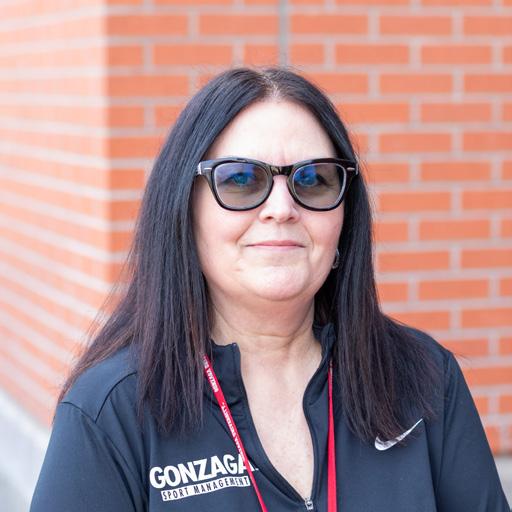
Tammy Everts
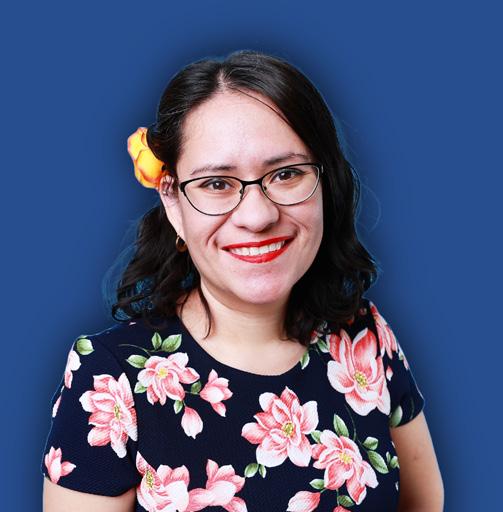
Ivette Godwin
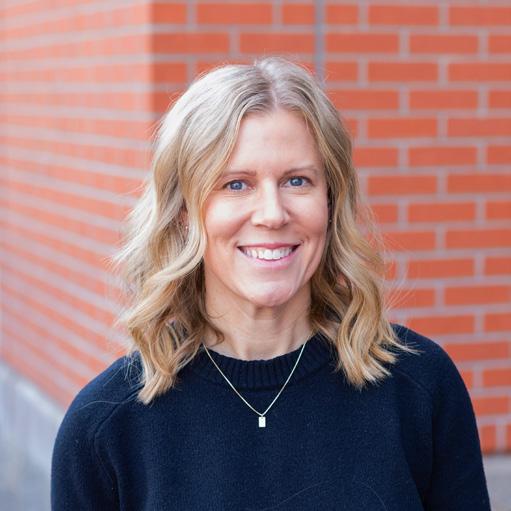
Kristen Kavon
Tammy Everts joined Gonzaga’s Staff Assembly because she wanted to build her community across campus and to advocate for staff. Fittingly, Staff Assembly seeks to foster a caring community of employees according to the values of the university. “It’s a place for staff to gather together,” said Everts. “It’s a positive group, we want to do good things and collaborate with people on campus.”
Now a representative on her second term, Everts serves as a member of the Staff Appreciation committee, which coordinates coffee and donuts, gift meals at the COG, raffles, and open house assembly meetings for all staff. They also attend events across campus, and work in conjunction with Gonzaga Alumni Group to coordinate a joint night out for staff and alumni at a Spokane Indians baseball game.
“We want people to know we appreciate them,” Everts said.
Since completing her undergraduate degree in 2013, Ivette Godwin has earned her MBA and is currently pursuing her doctoral degree in Leadership Studies. For the past 12 years, and throughout her latest two degrees, she has served Gonzaga as a staff member. According to Godwin, she has stayed through the years because of the community she’s found within her alma mater.
Since her time as office manager in Undergraduate Admission, Godwin went on to serve in Enrollment Management, where she also focused on DEI initiatives, including strategies on hiring and retaining staff members of color. Now, she splits her time between the Schools of Education and Leadership, where she is budget and personnel officer.
“It’s been cool to expand my relationships across campus,” said Godwin. “It makes my work joyful to know I’m working with people and not for people.”
“As people, we stop moving when it stops becoming required by your education system,” said Kristen Kavon, director of Gonzaga’s Physical Education (EDPE) Activity Class program. As such, Kavon has centered her twenty-year tenure at GU around making physical activity accessible to each student — so that everyone can, according to Kavon, “find an EDPE activity class that resonates with them. One they can sign up for and walk away knowing it positively impacted their college experience.”
From Pilates to scuba diving, rock climbing, weight training, self-defense, or soccer, basketball, volleyball, and golf, EDPE’s course offerings are vast. “People feel it’s a huge risk to try something new, especially when it comes to health and fitness,” said Kavon, whose program accommodates students of varying abilities, learning styles, and needs. “We prioritize inclusivity, and making sure everyone feels comfortable to take classes.”
Last fall, 1,869 students across campus enrolled in activity classes—and not because they were required to. “They choose to do these,” said Kavon. EDPE creates impact across campus because it provides students with a place to build healthy habits, be active, and breathe. And instructors keep coming back, she said, because they get to see how movement changes and develops the whole person.
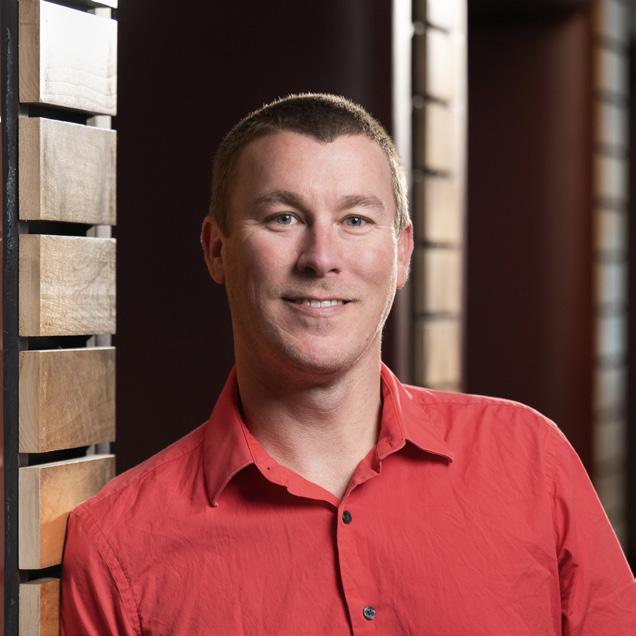
The School of Education (SOE), as Dean Gallardo noted in her opening message, is steadfast in its commitment to human flourishing. Human flourishing is a direct result of cura personalis, or care for the whole person. Through this work, the SOE continues to grow and thrive in the Spokane community.
When thinking about the growing nature and strength of the SOE, I am reminded of the giant sequoia. The giant sequoia, standing approximately 250 feet tall, is an aweinspiring sight to see. It is easy to get lost in a sequoia’s magnitude.
While what you see above ground is incredibly impressive, perhaps the most impressive aspect is what you cannot see. The roots of an individual giant sequoia is much too shallow to support the tree; the root system, however, extends horizontally and interconnects with other sequoia roots to support each other. The root system of the SOE, like the giant sequoia, starts with our faculty,
staff, and administration, and extends to community agencies, schools, families, parents, students, children, etc. The interconnection between the SOE and our community partners is what holds the SOE up and is what is necessary for success in the future.
As the School of Education continues to promote human flourishing, let us be reminded that to do so, it is often the unseen aspects our work with others that creates a system where all are supported.

Joseph Engler, Ph.D. Associate Dean, School of Education

502 E. Boone Ave., Spokane, WA 99258-0098
Magazine Contributors
Dean, School of Education
Yoli Gallardo
Project Manager & Designer
Lauren Sfeir
Writer
Hannah Mumm
Editors
Lauren Sfeir
Kate Vanskike (’22 M.A.)
Thea Skokan (’22)
Photographers
Lauren Sfeir
Zack Berlat (’11)
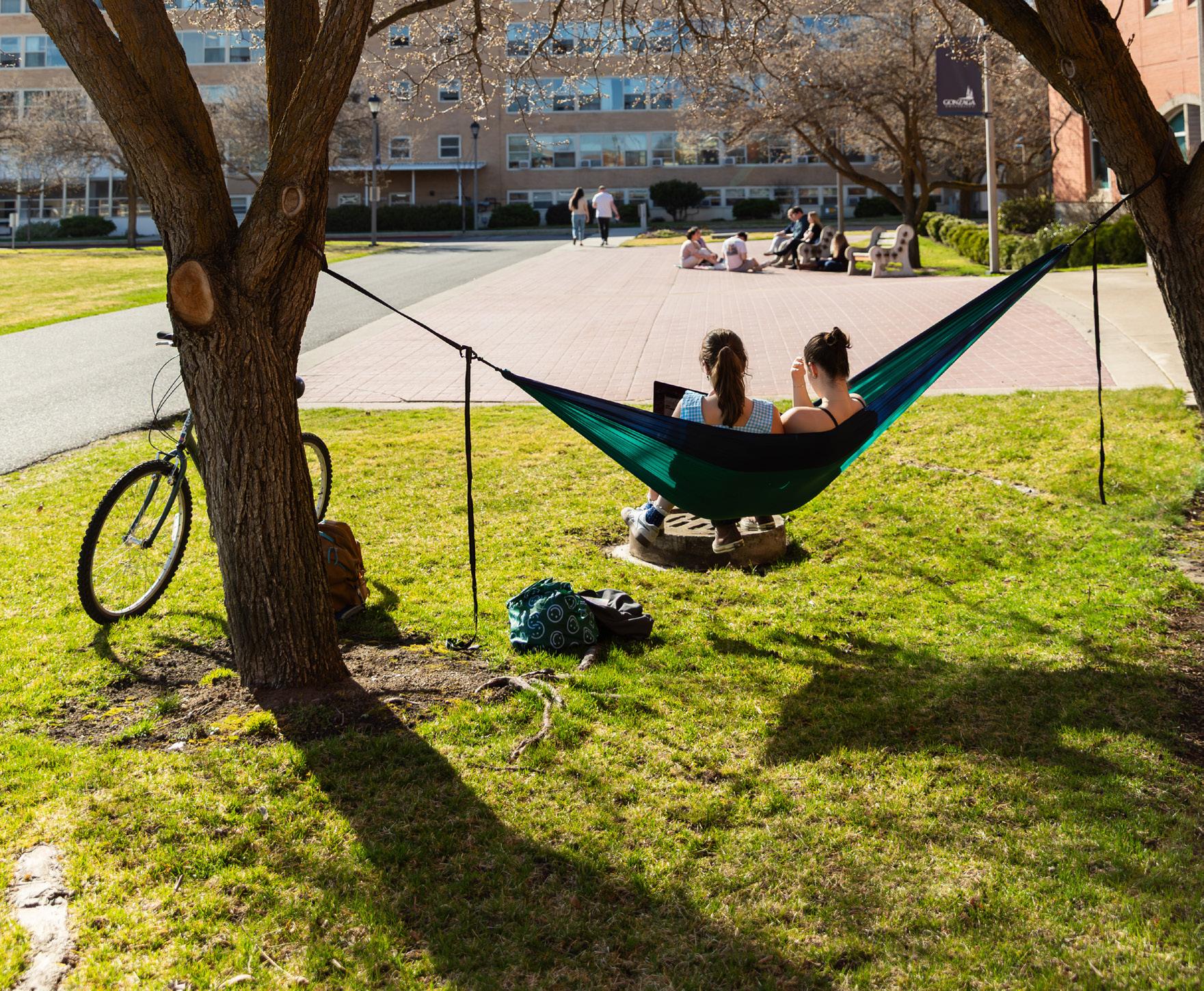
Want to be GIVE TODAY! part of this work?